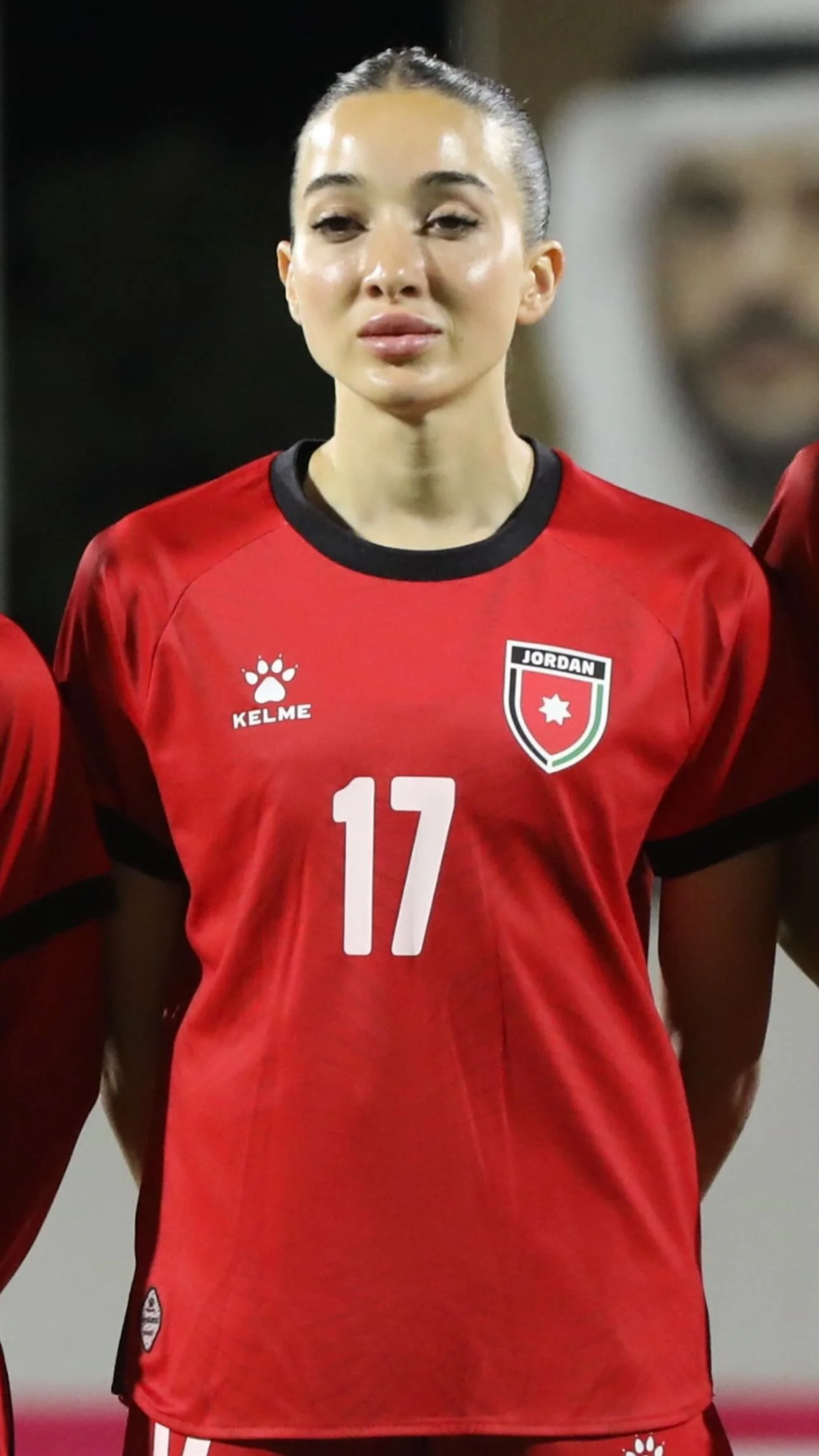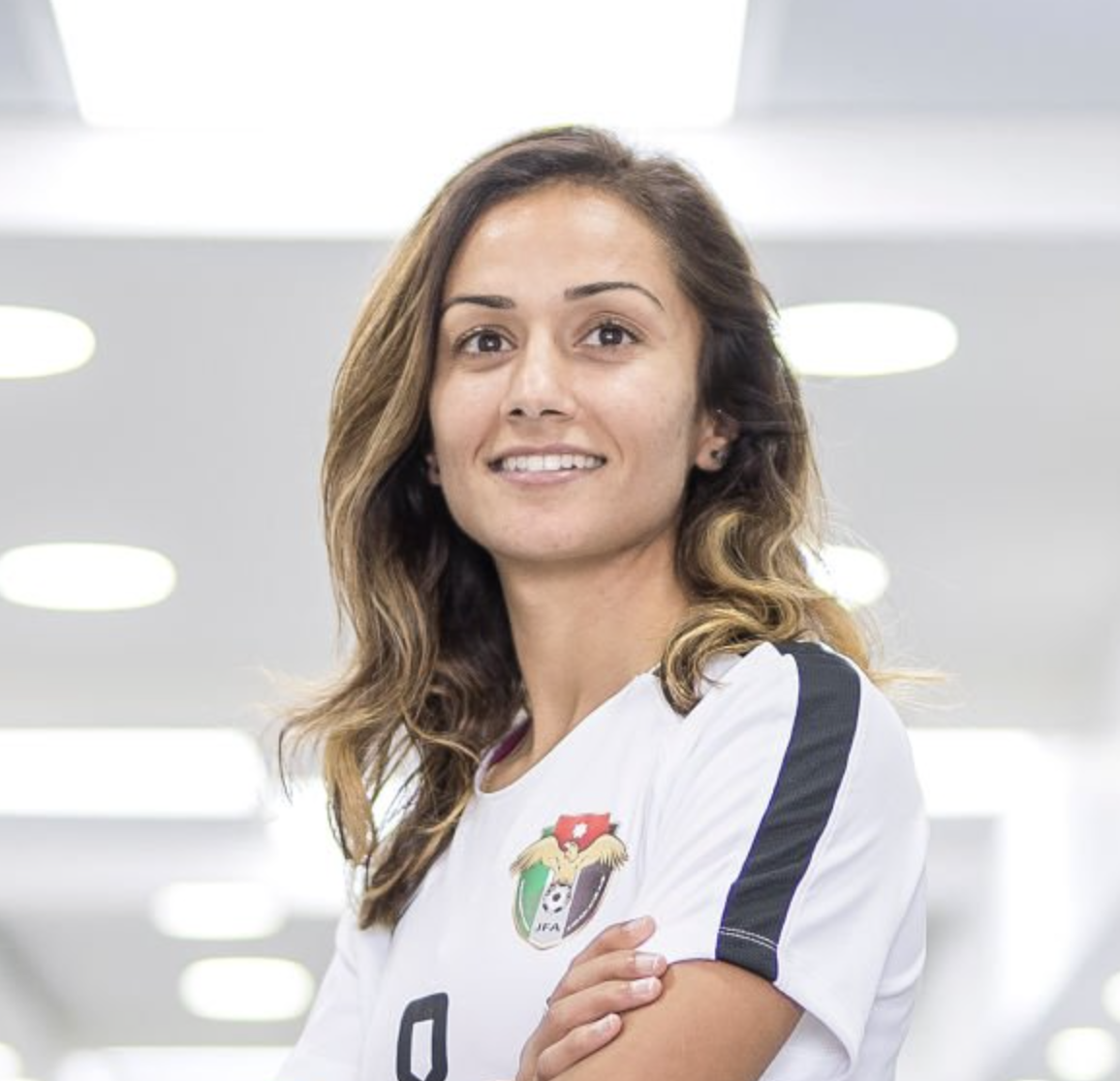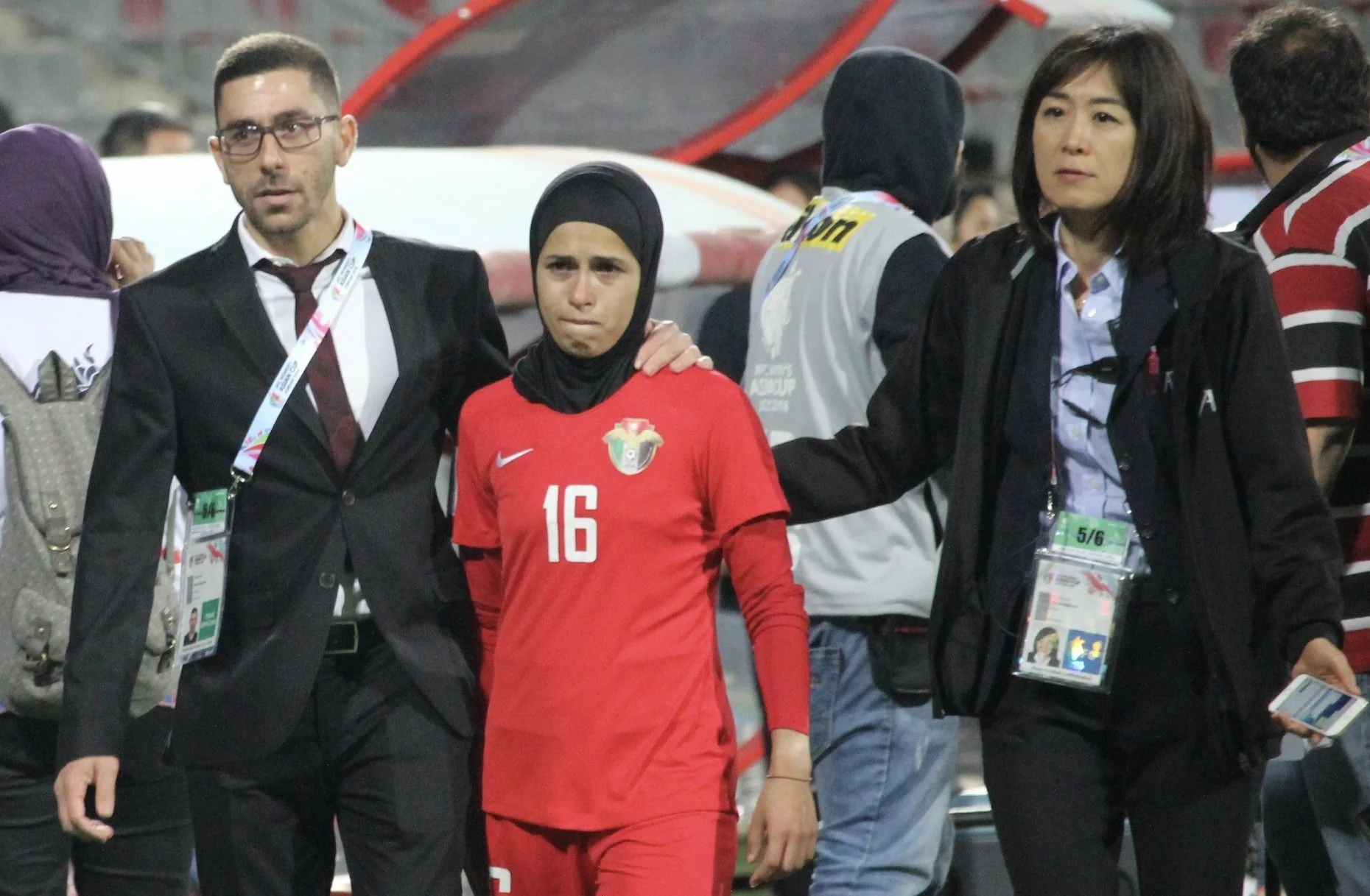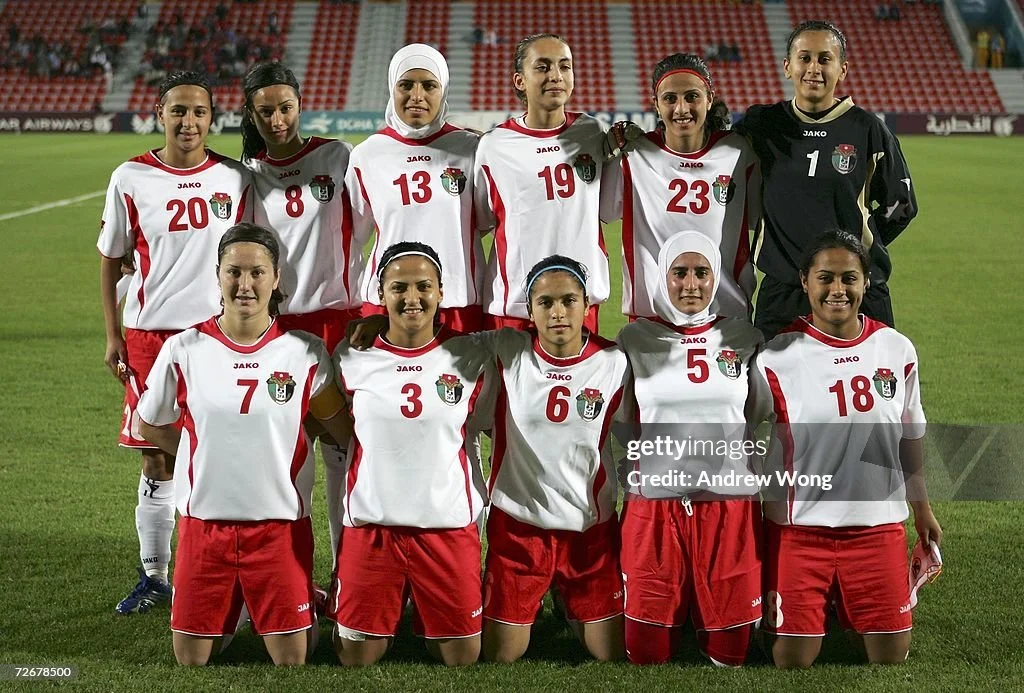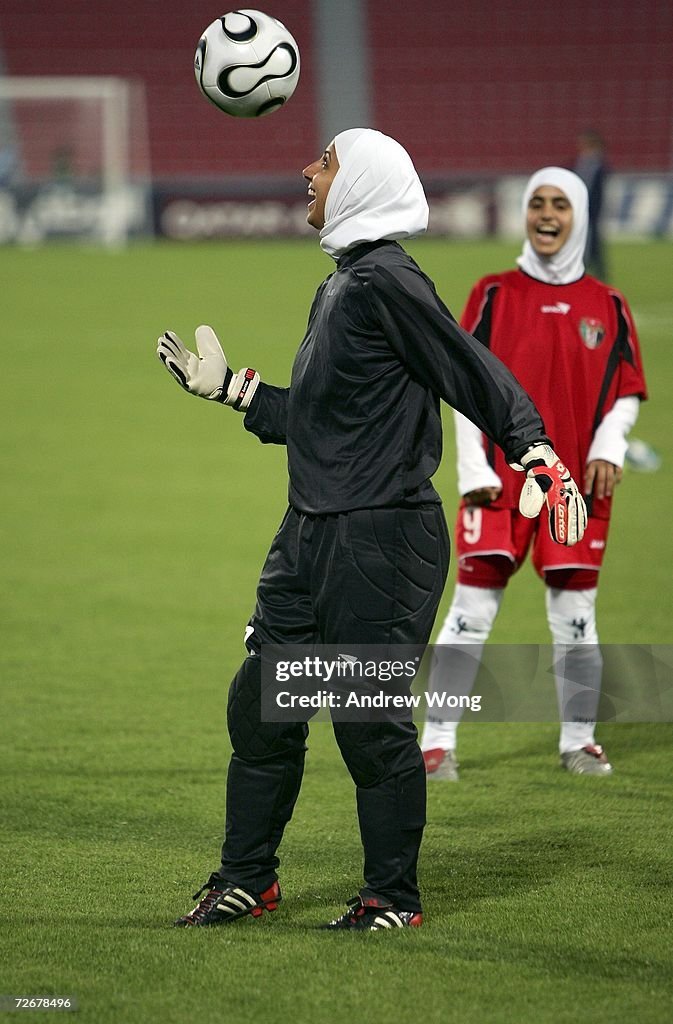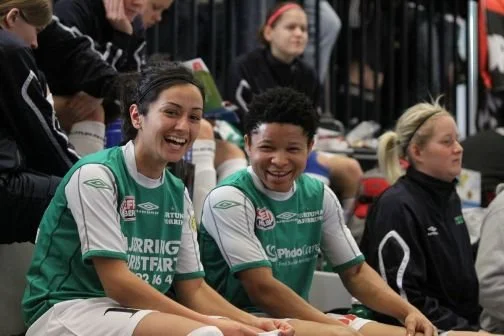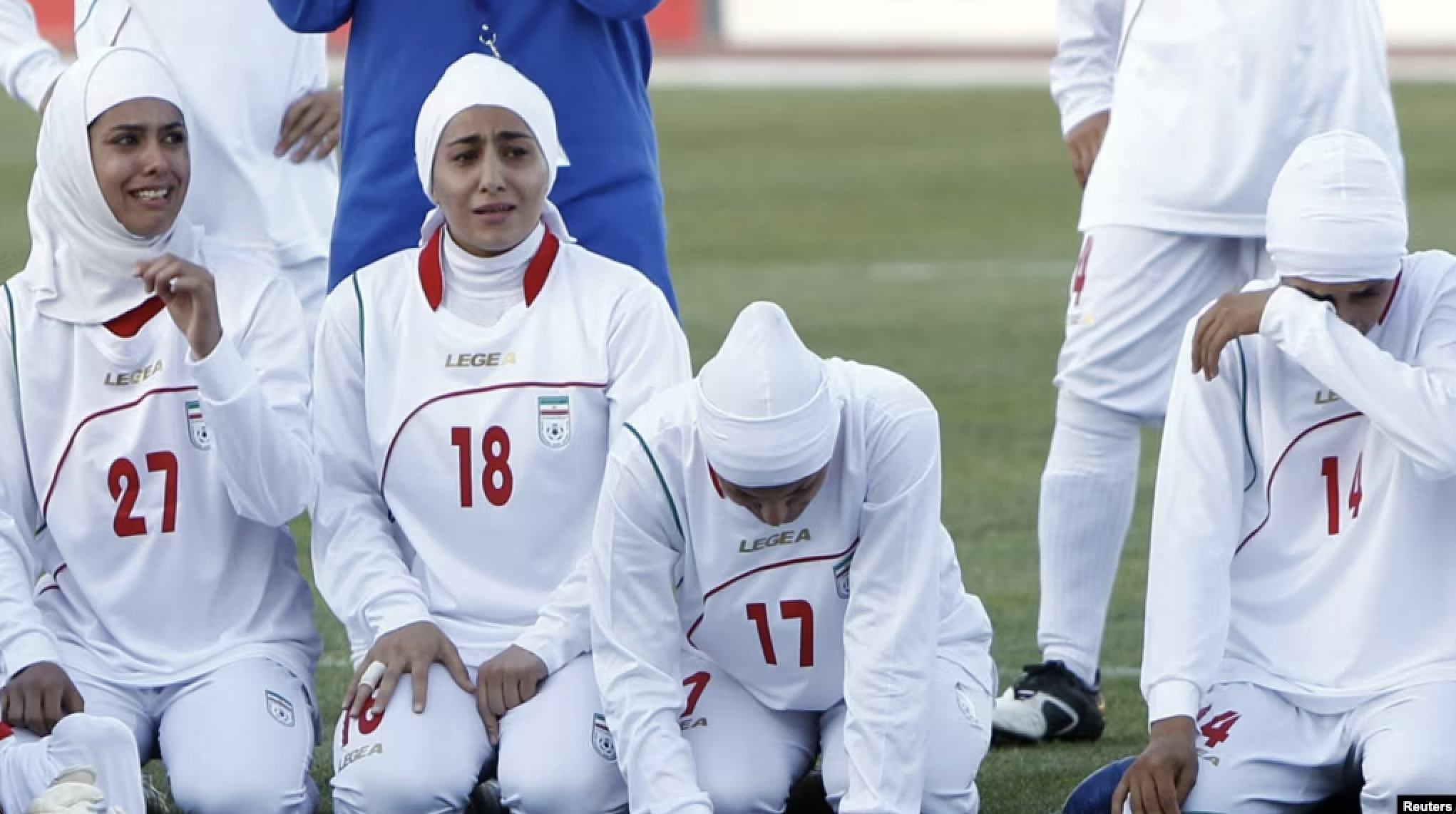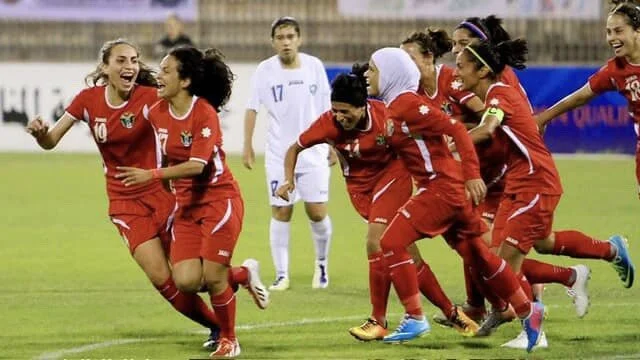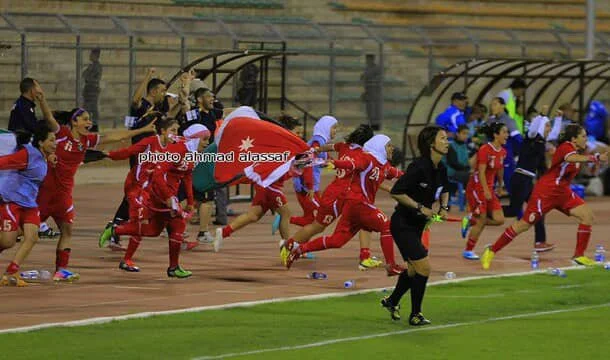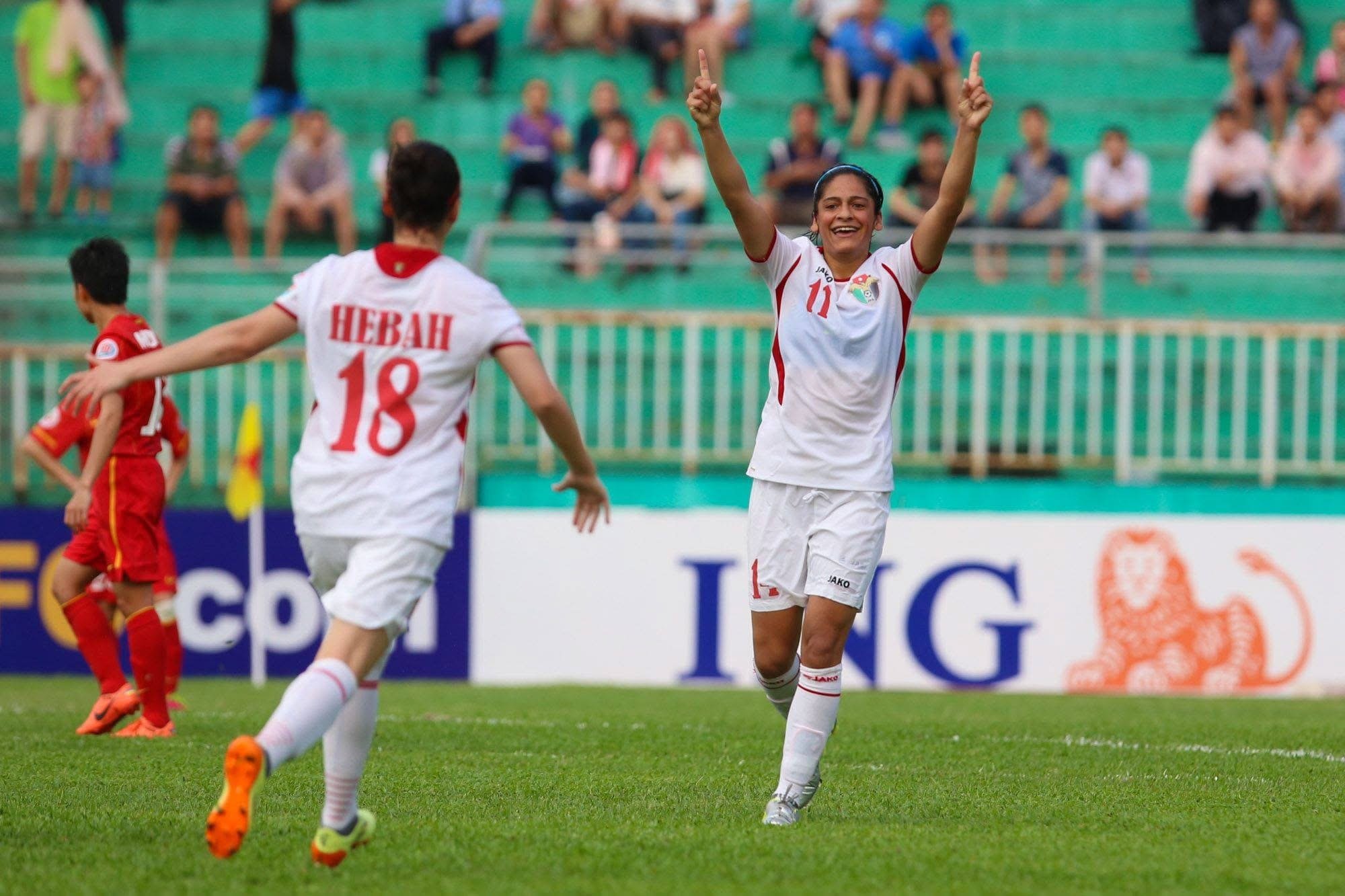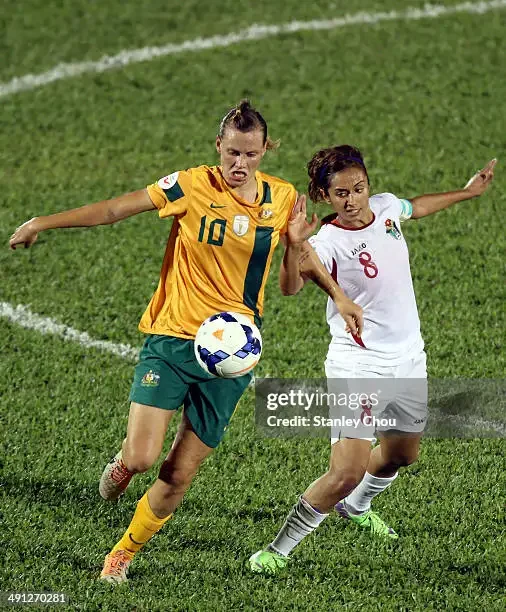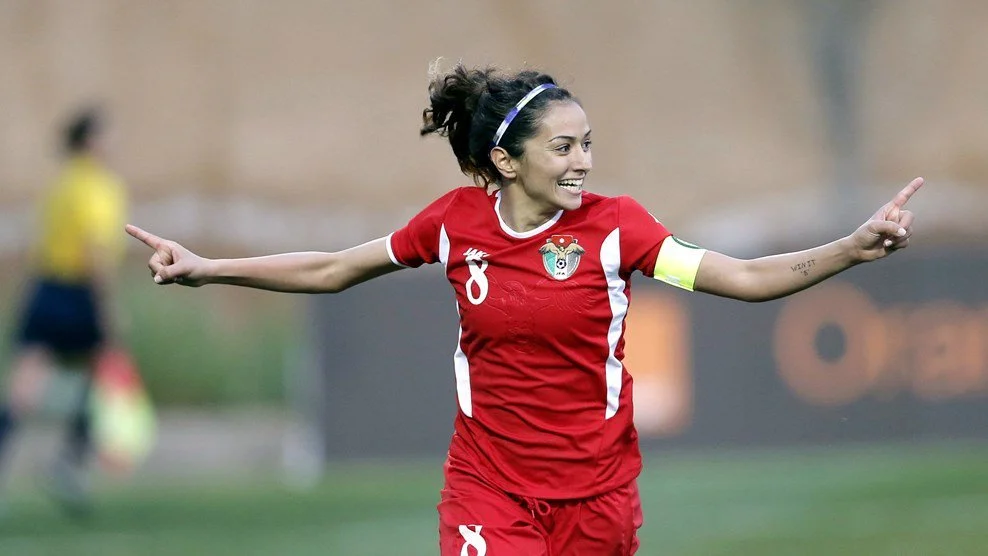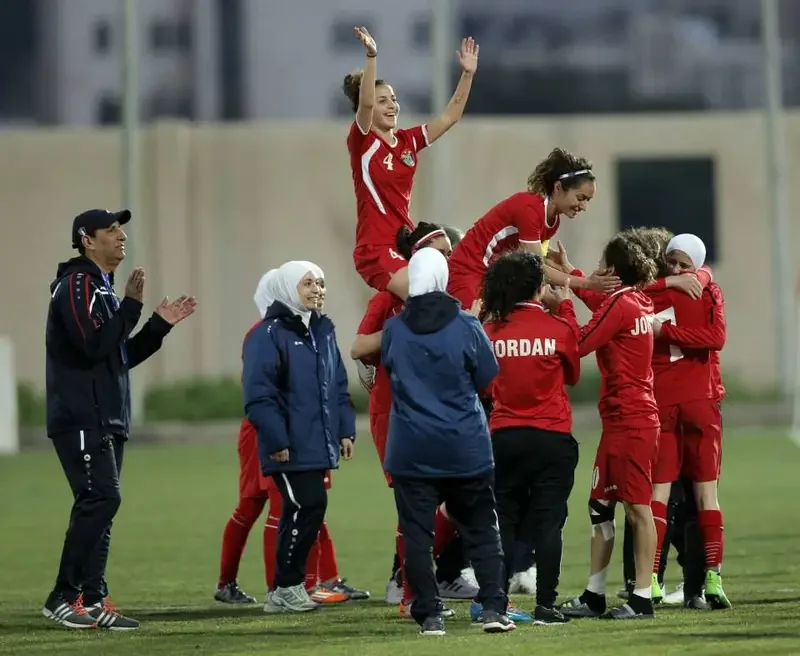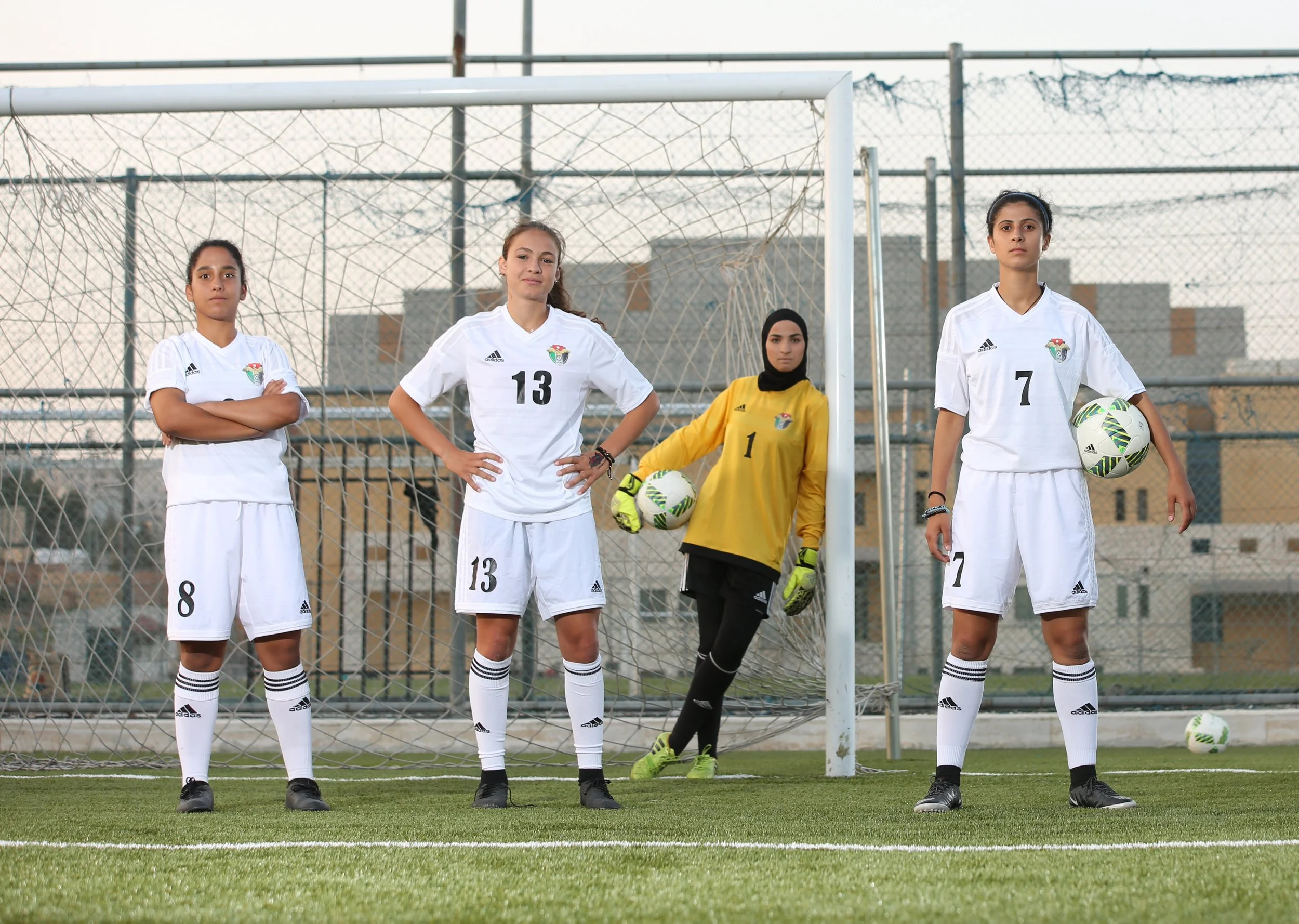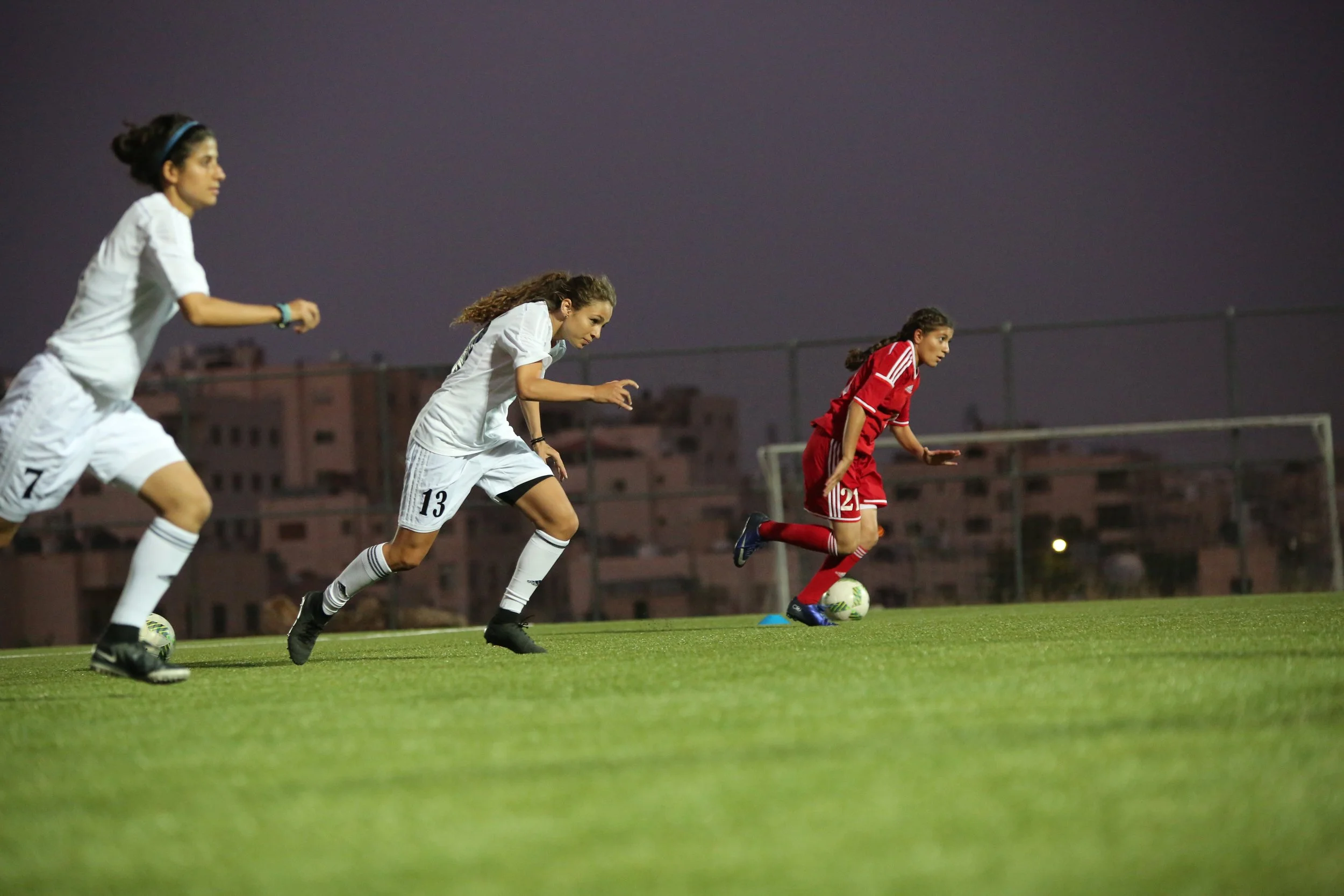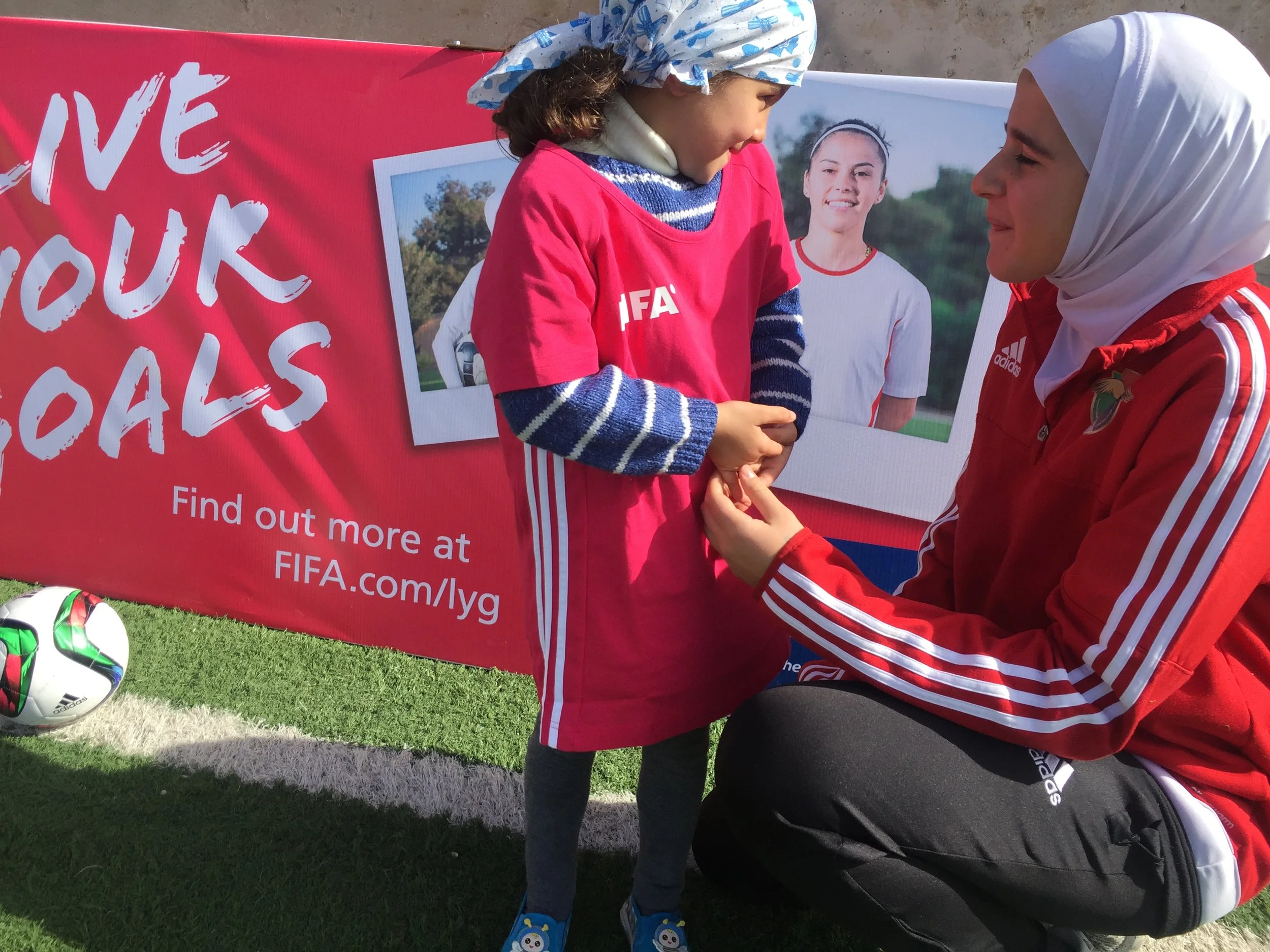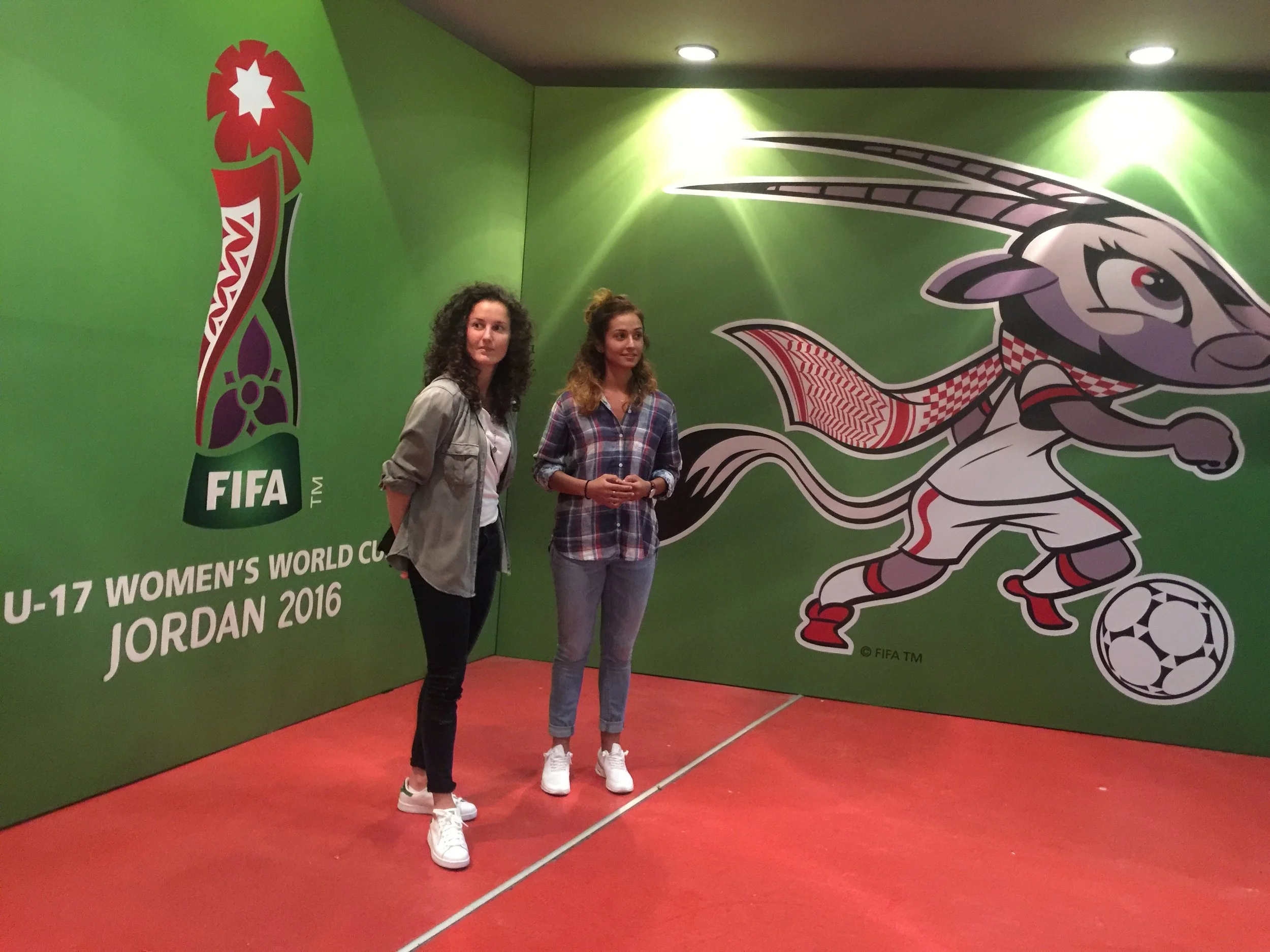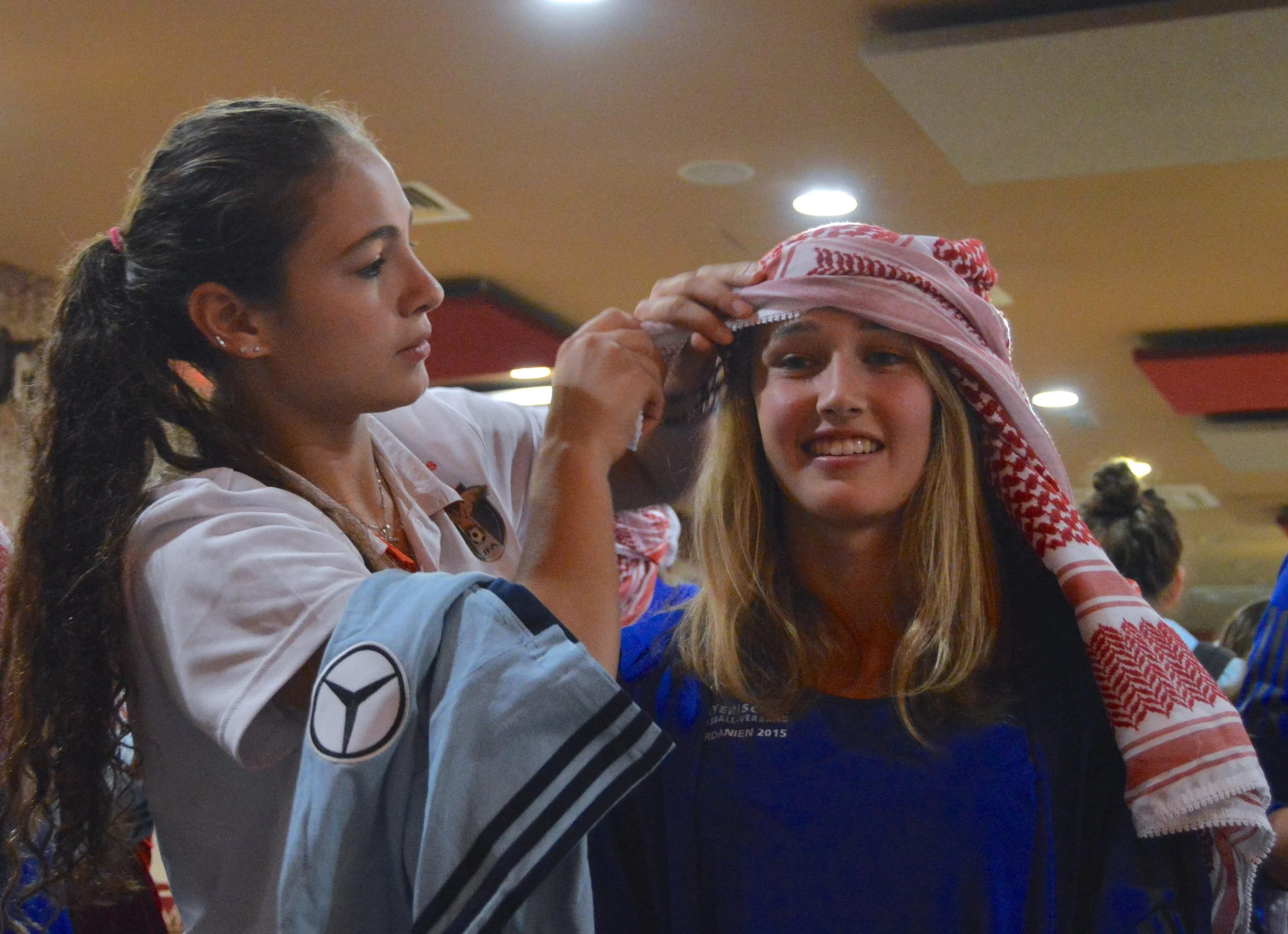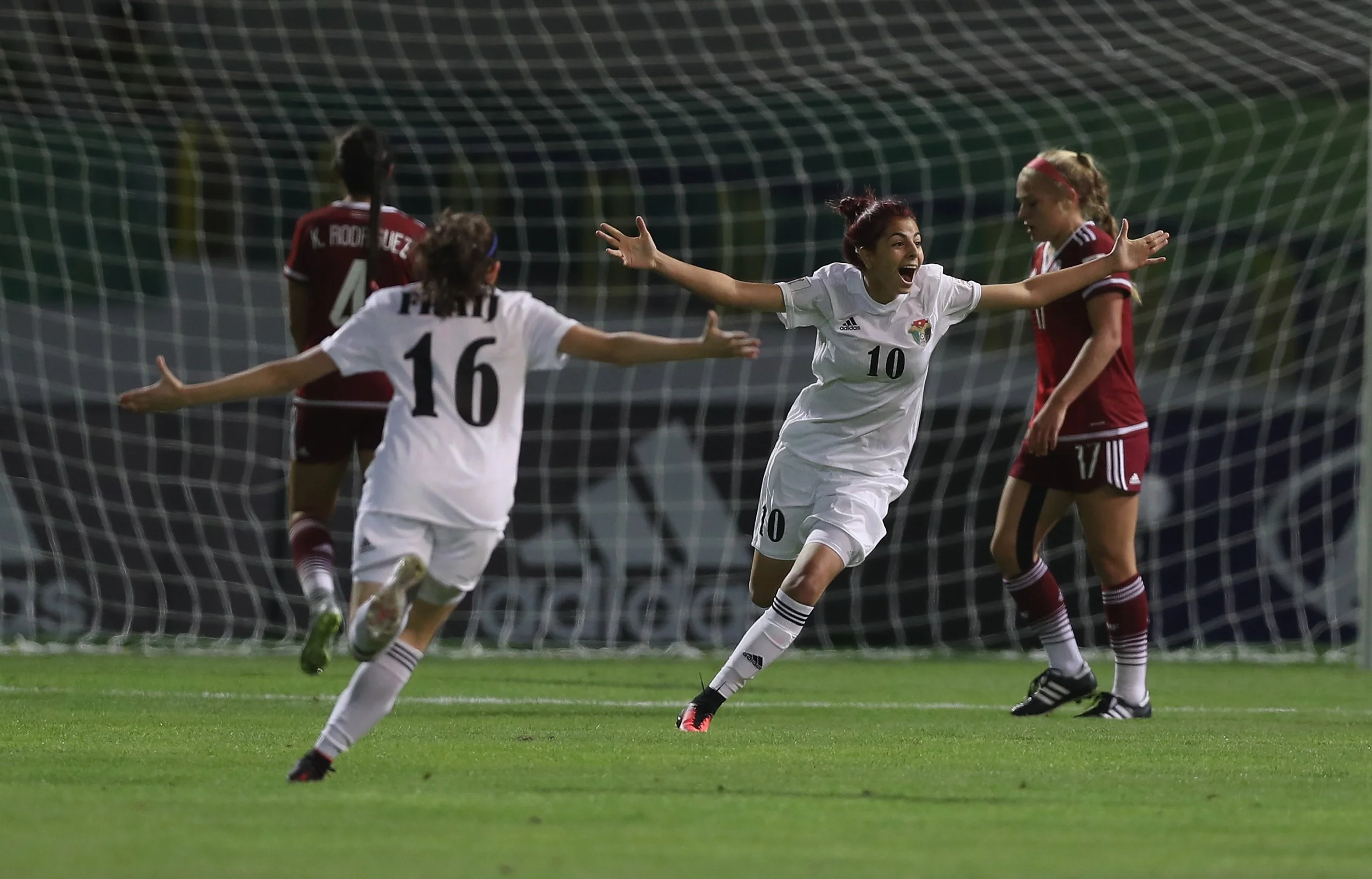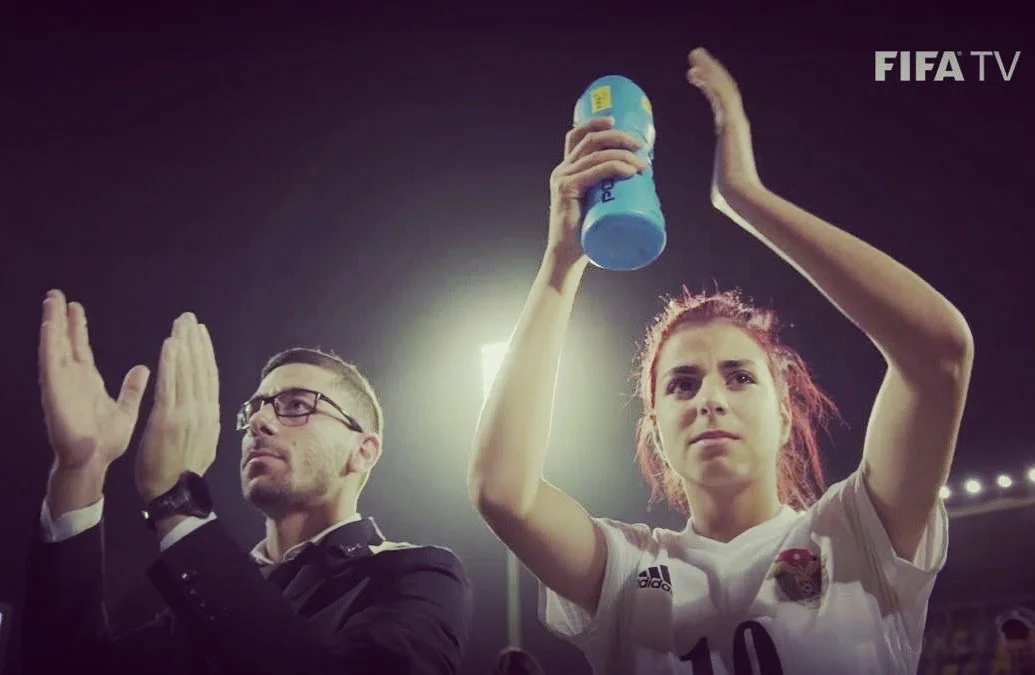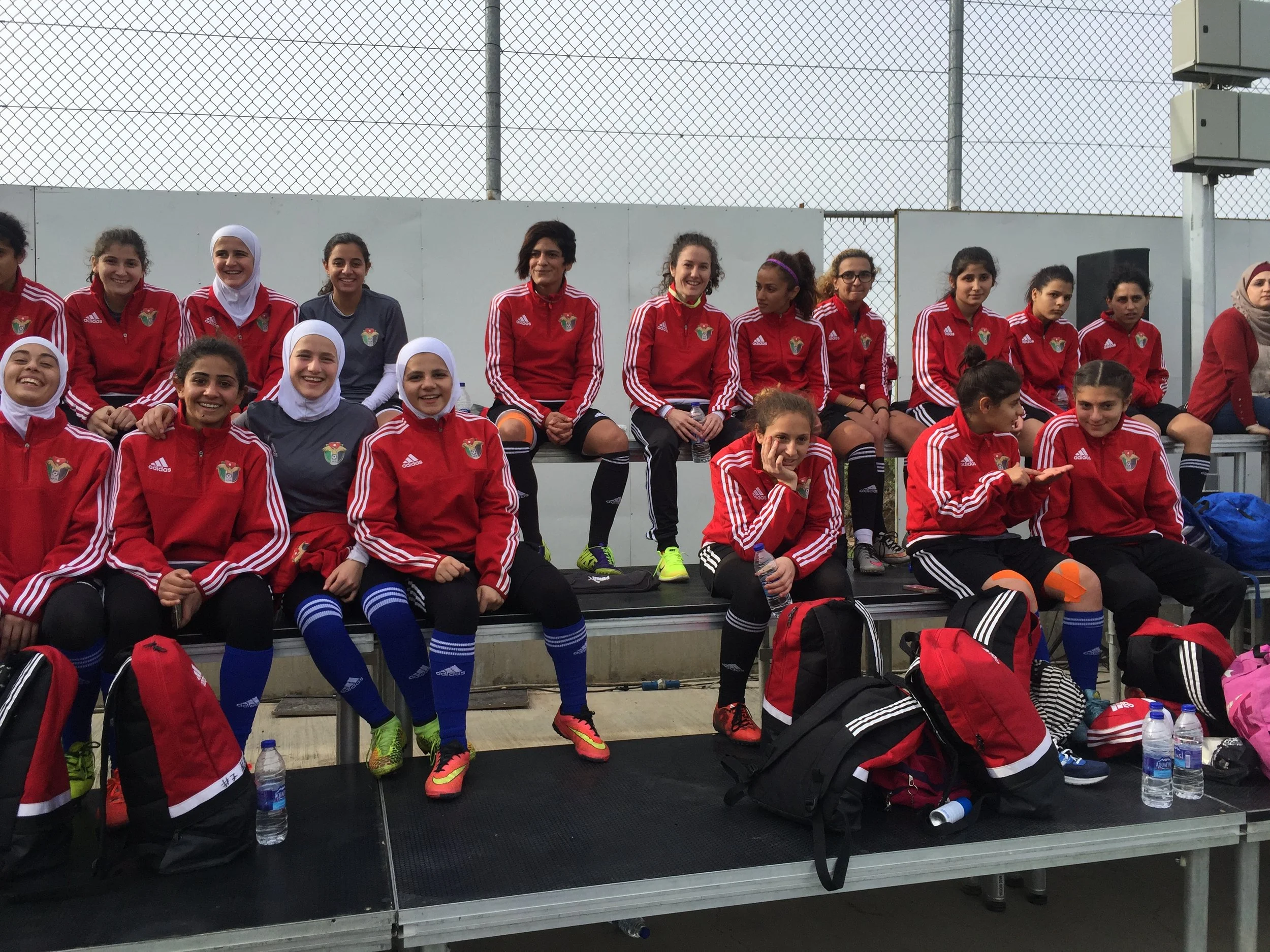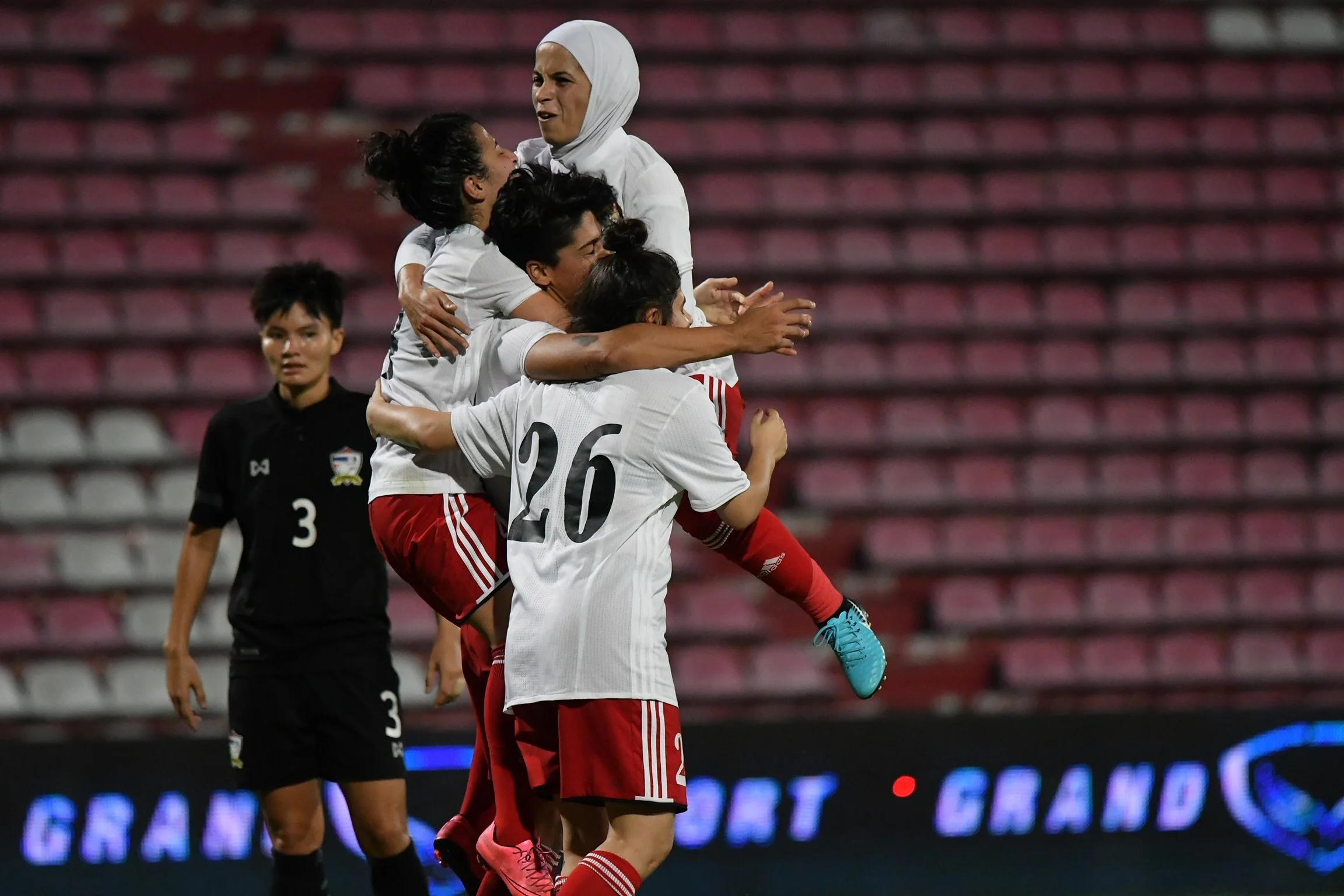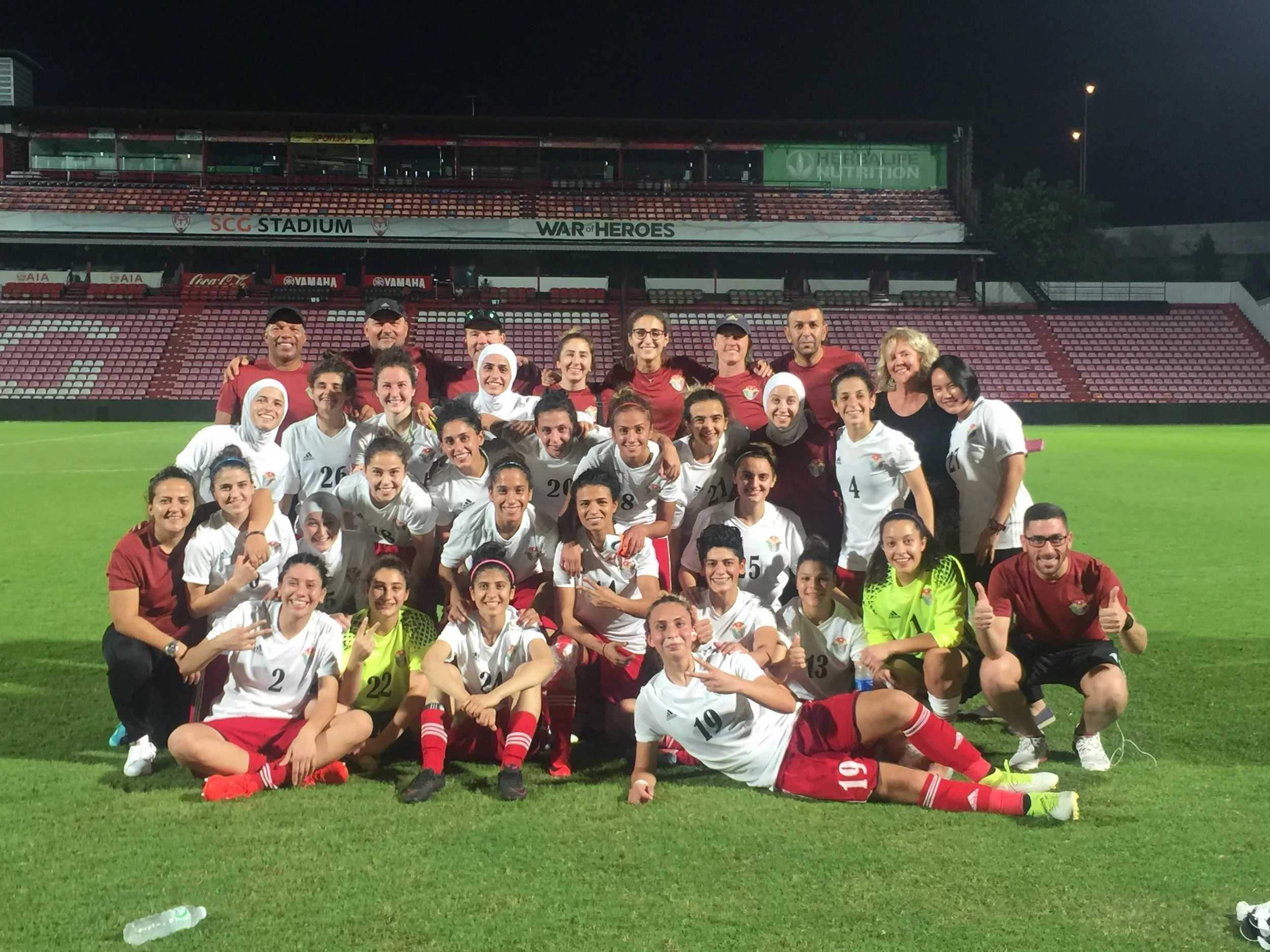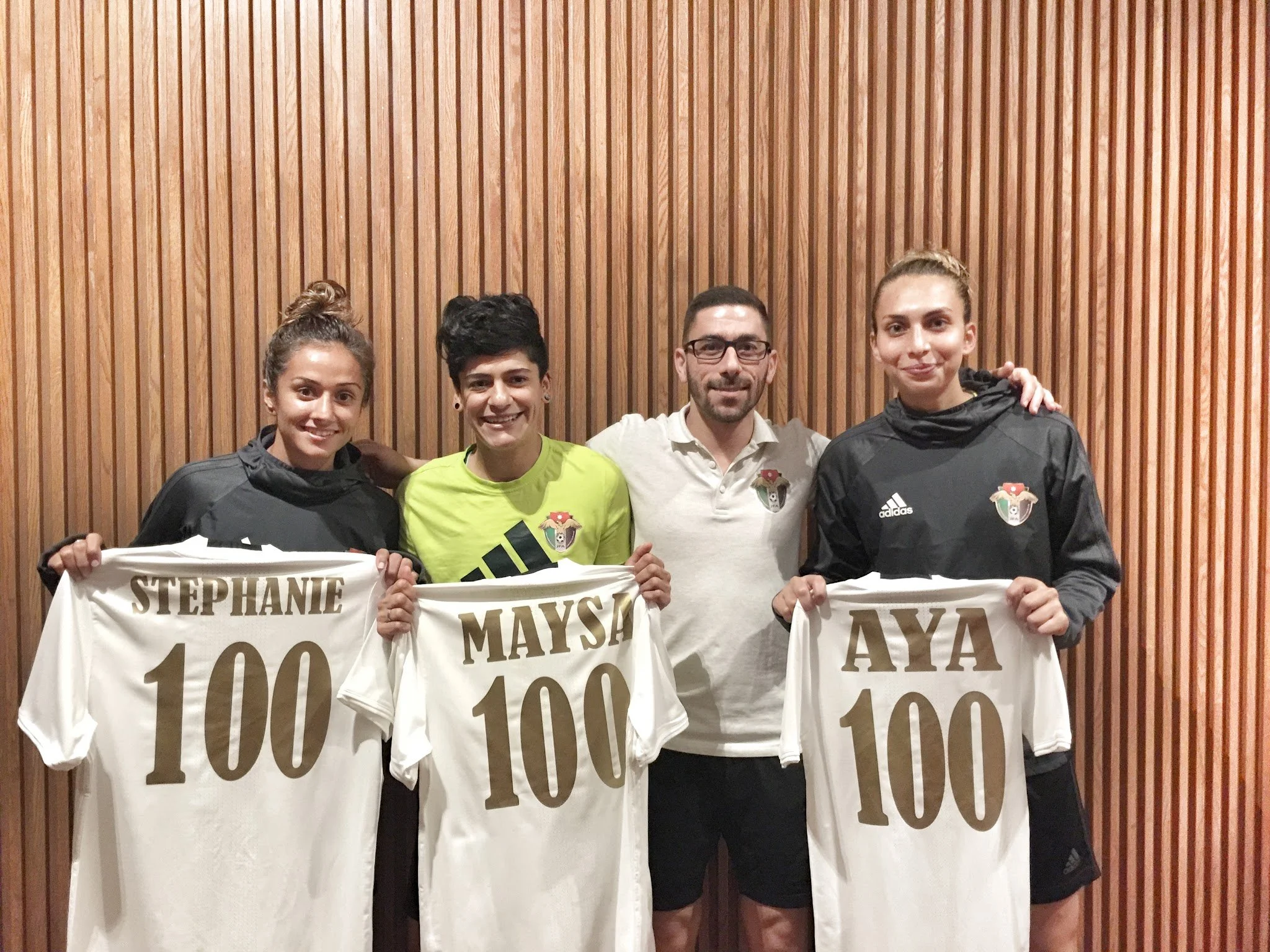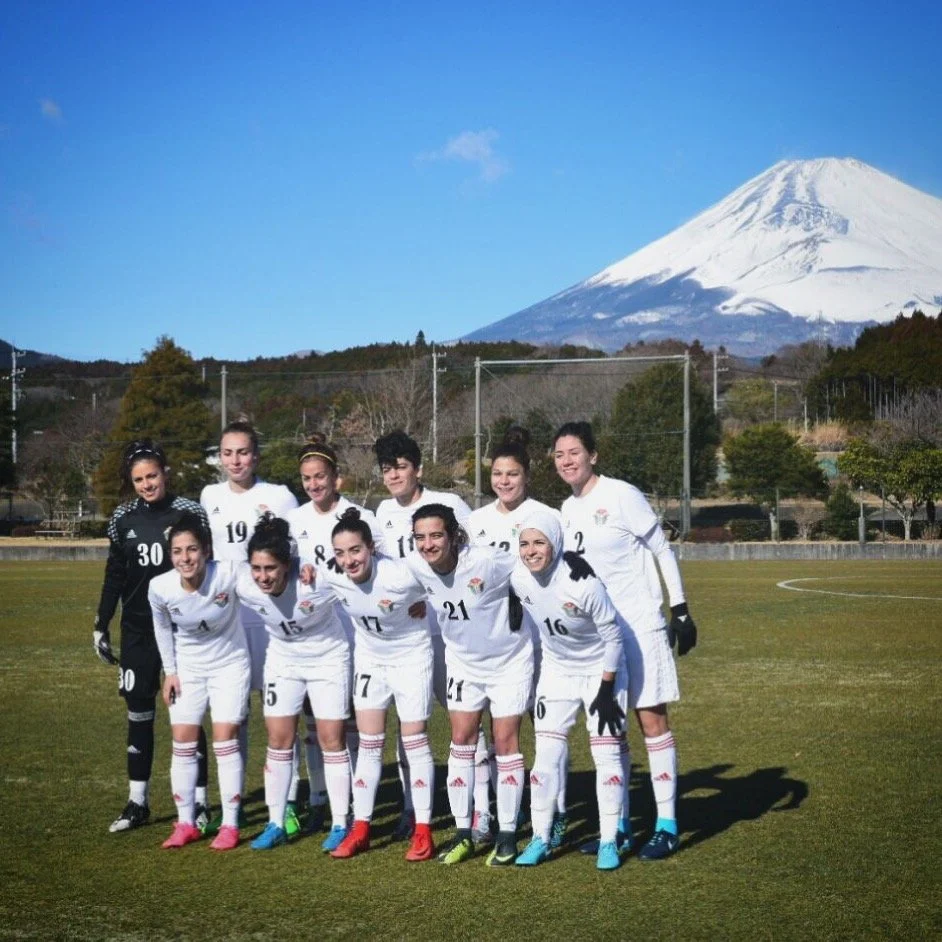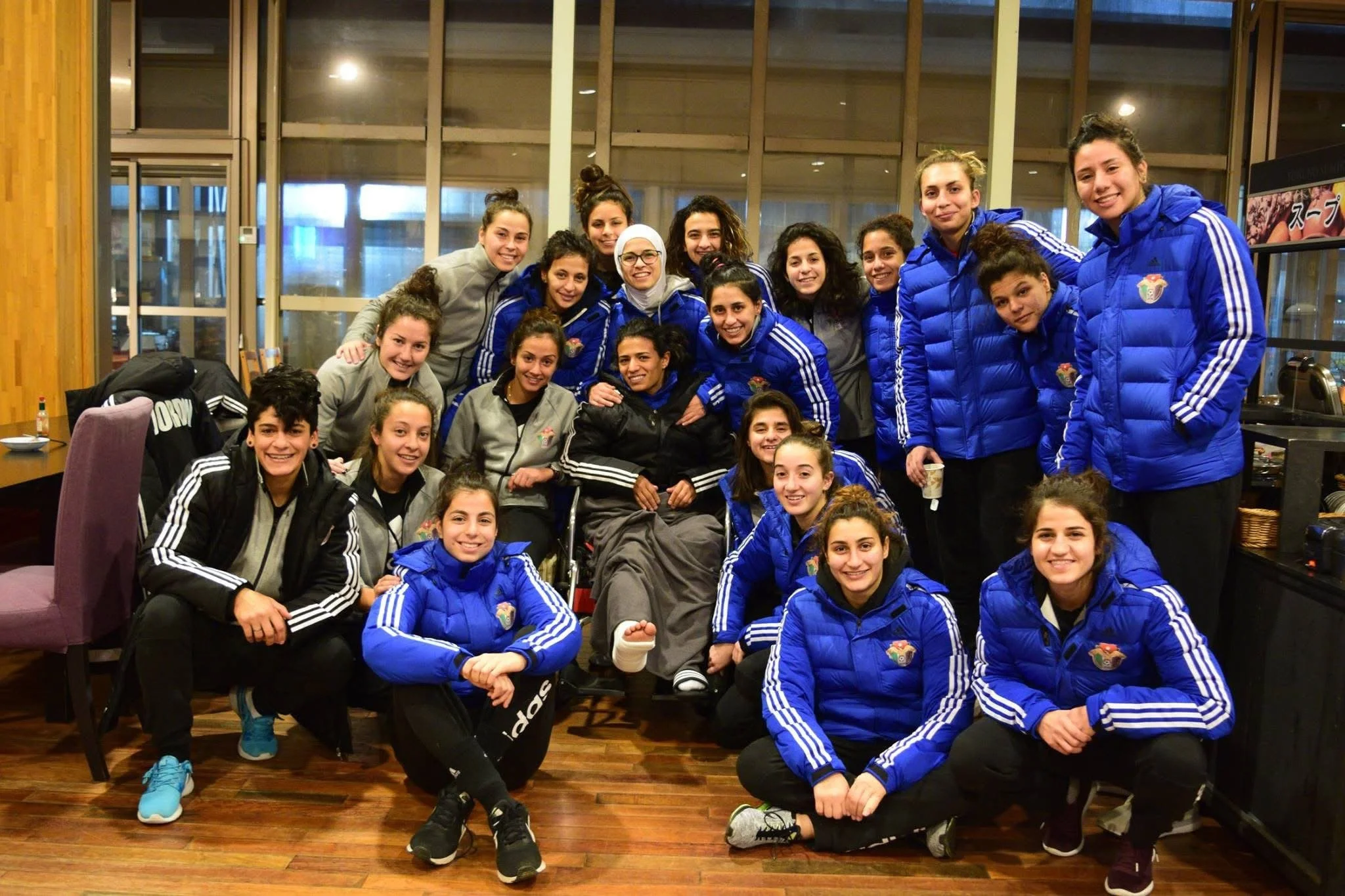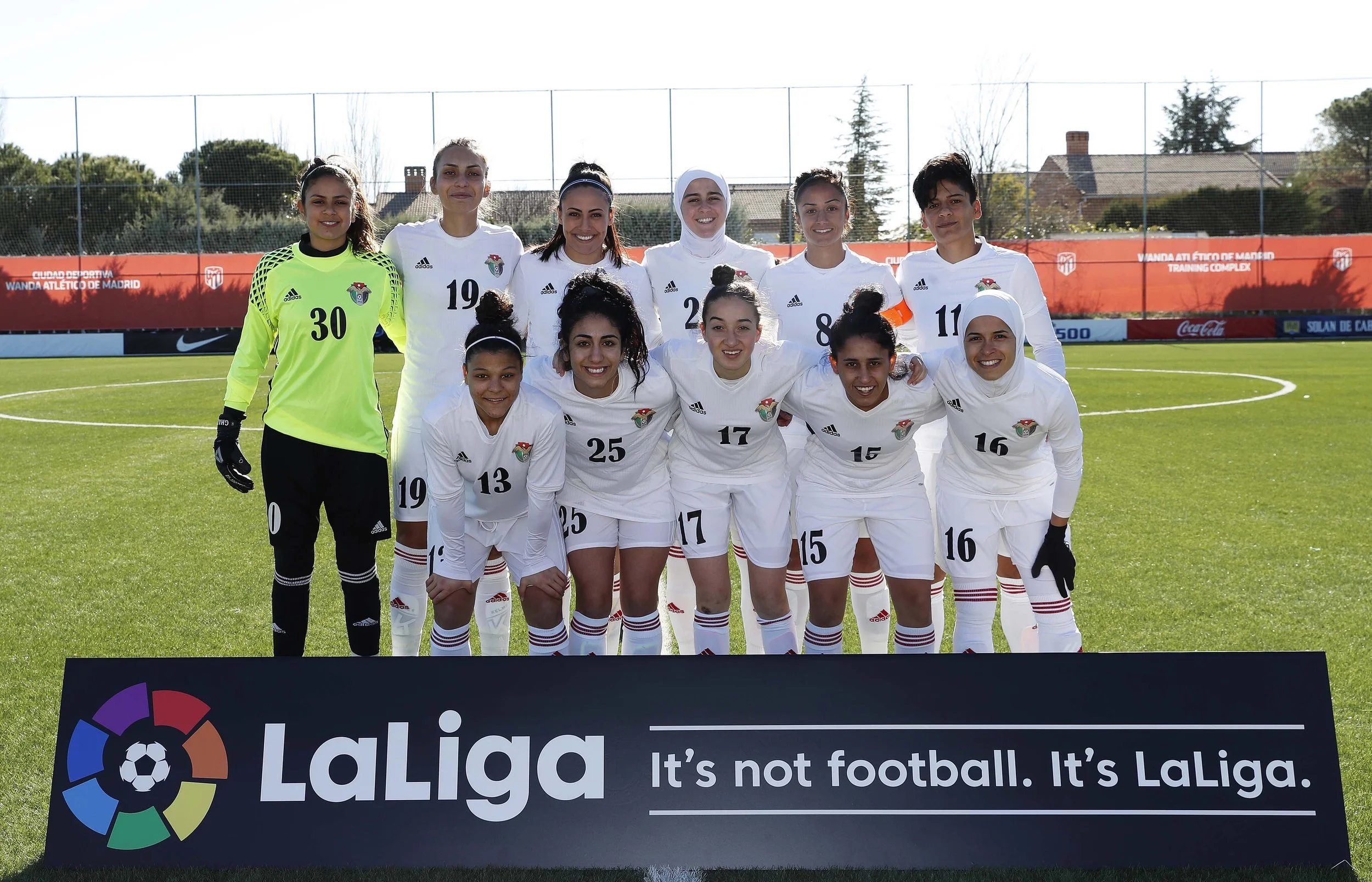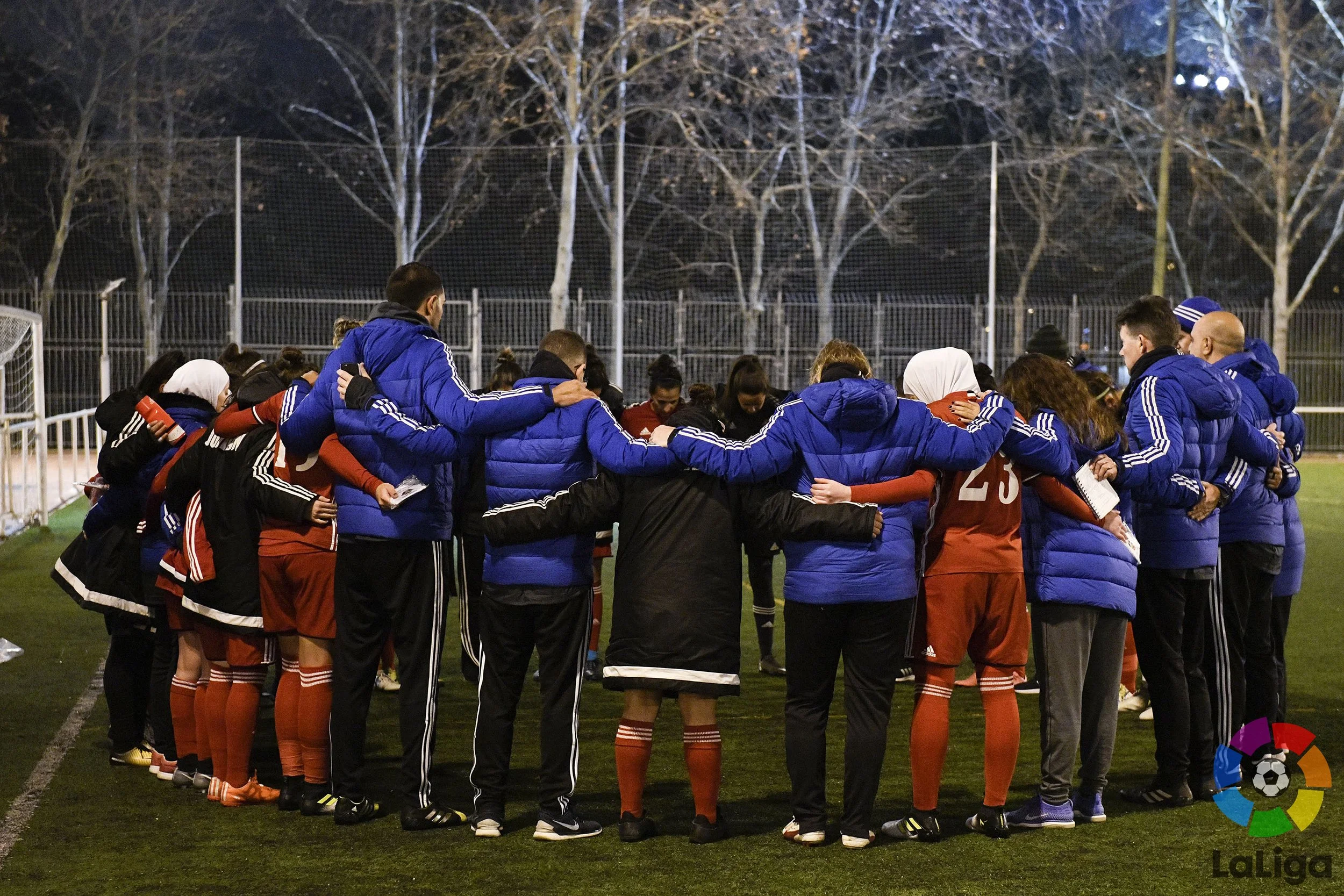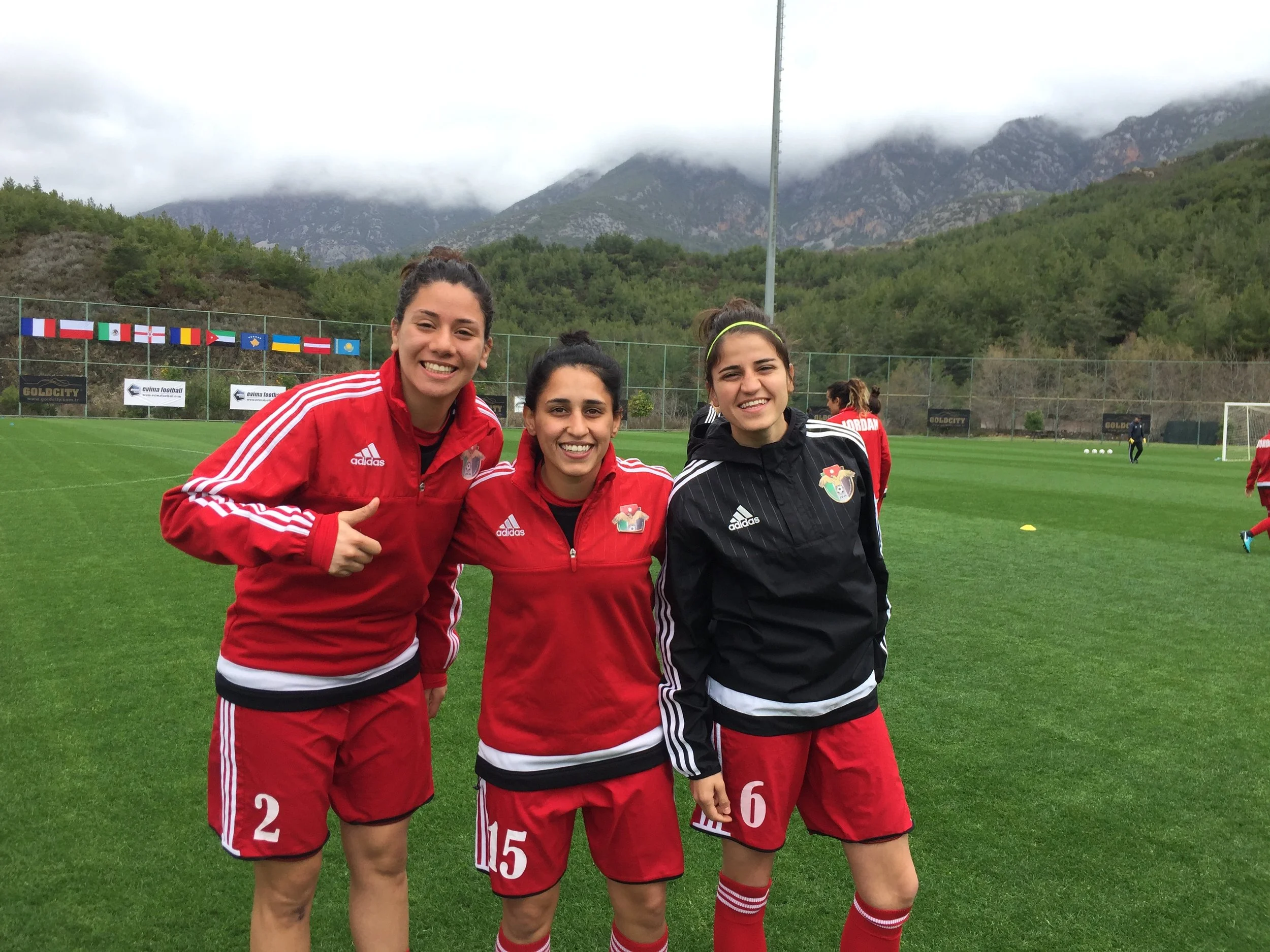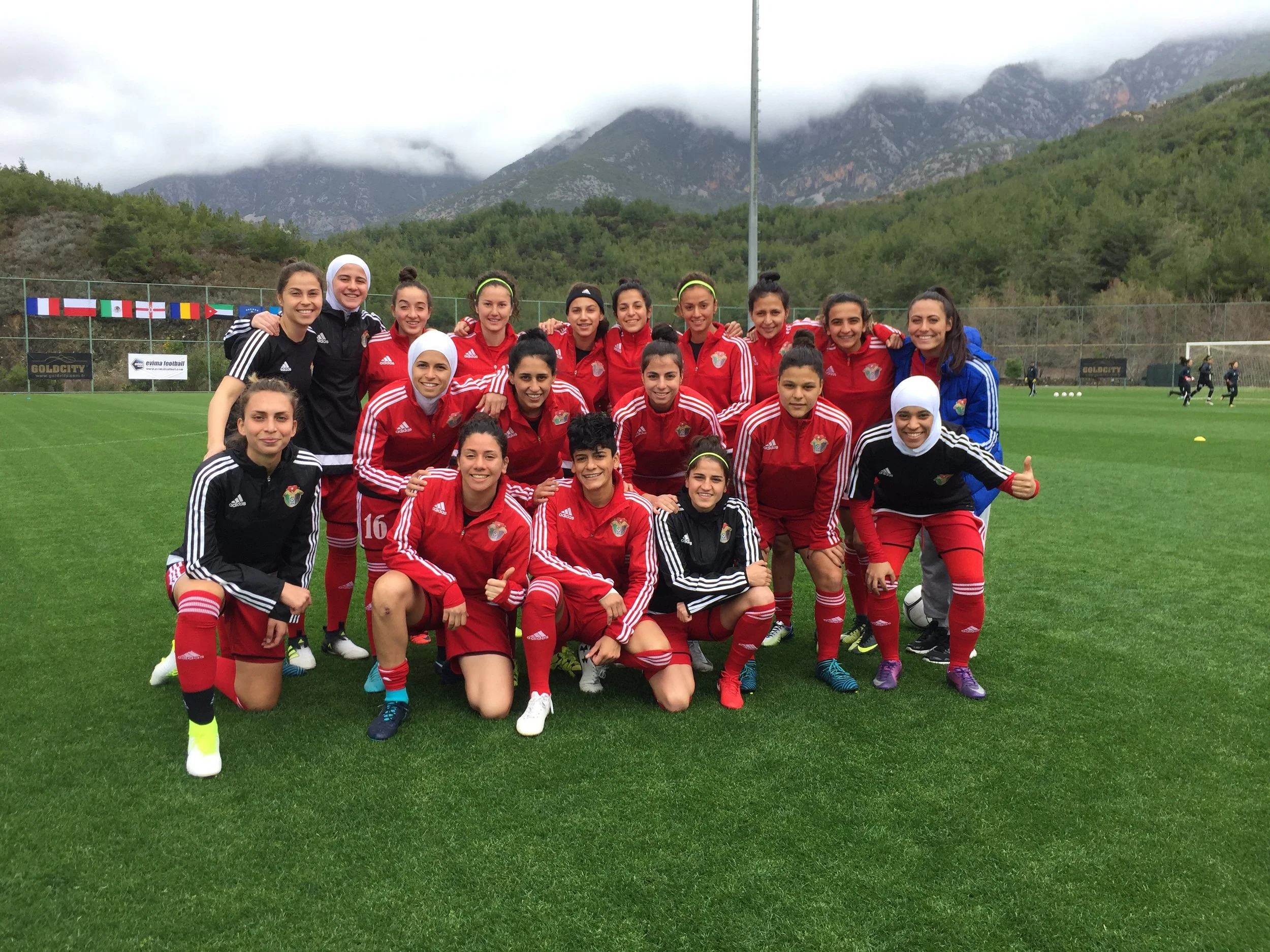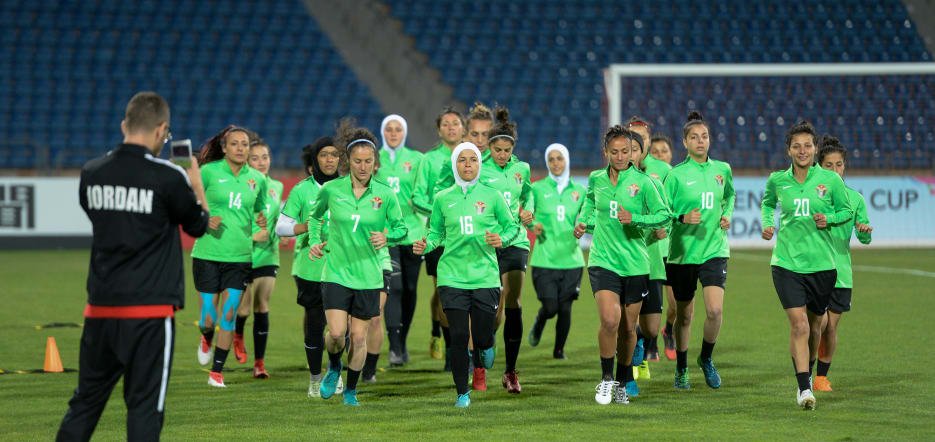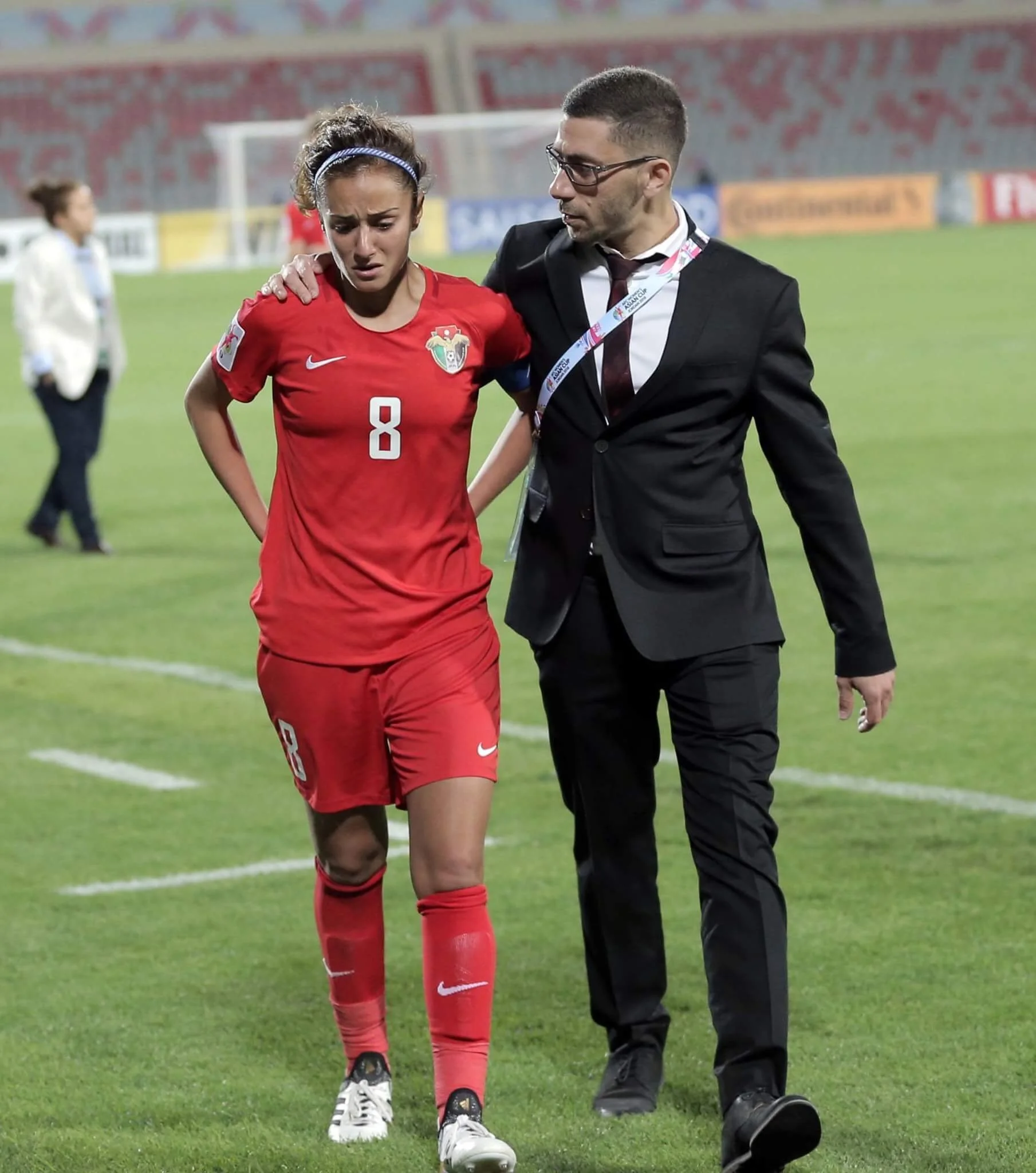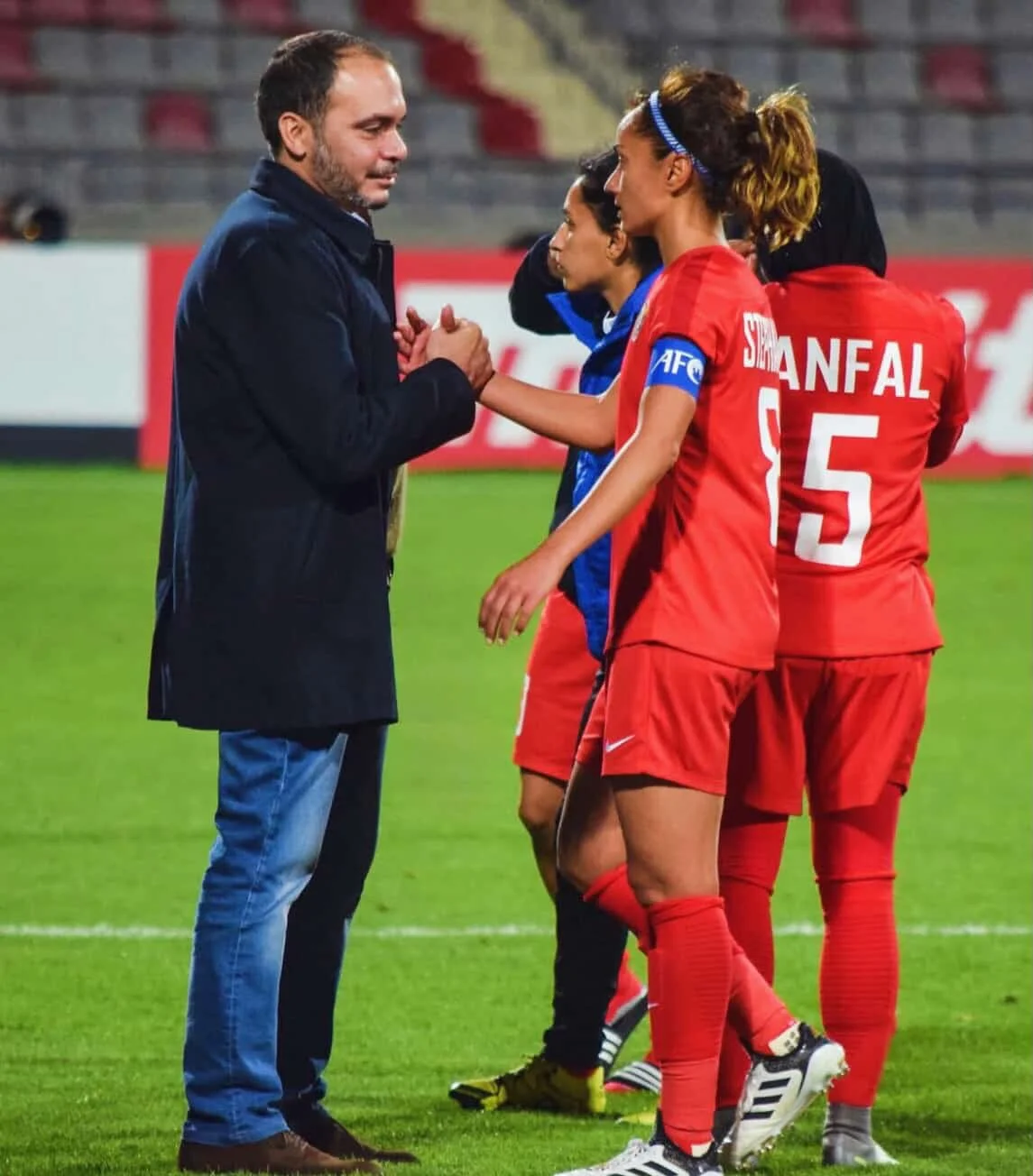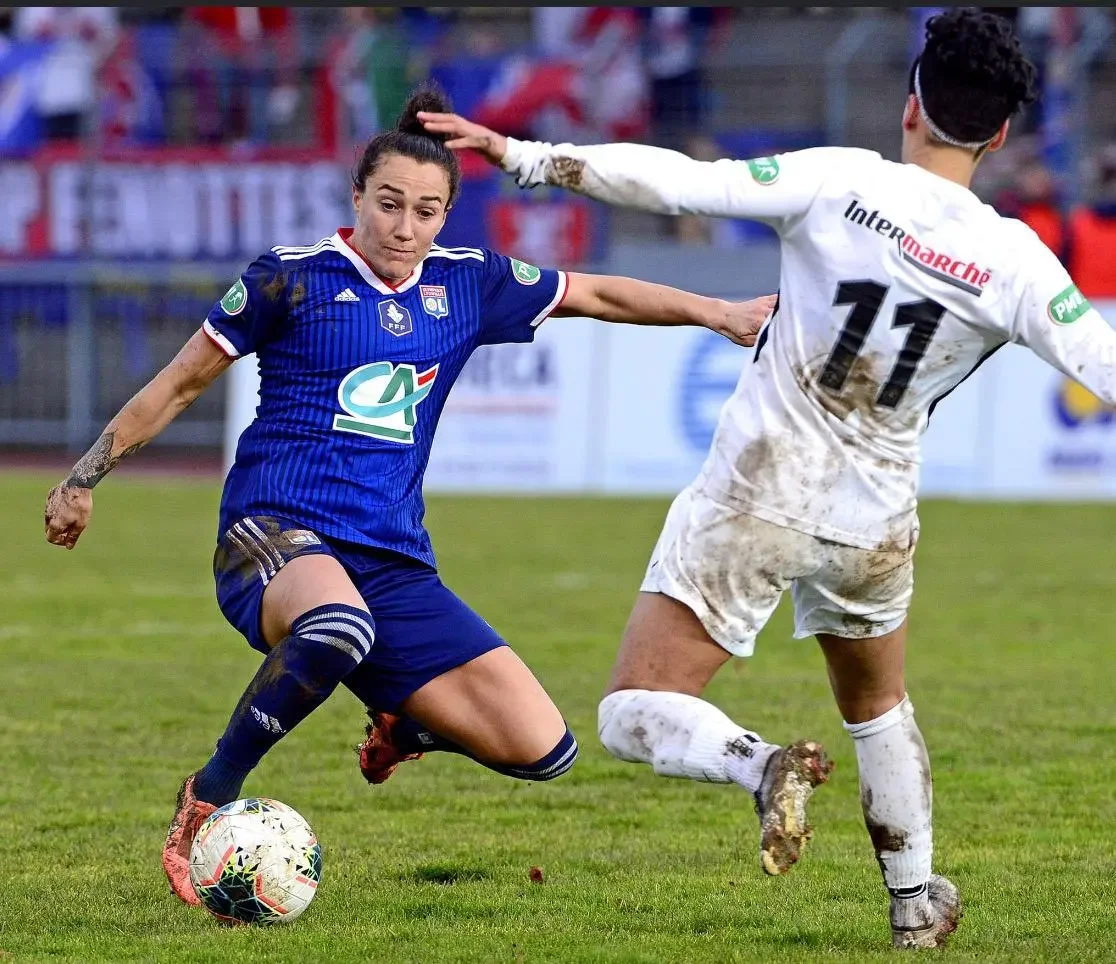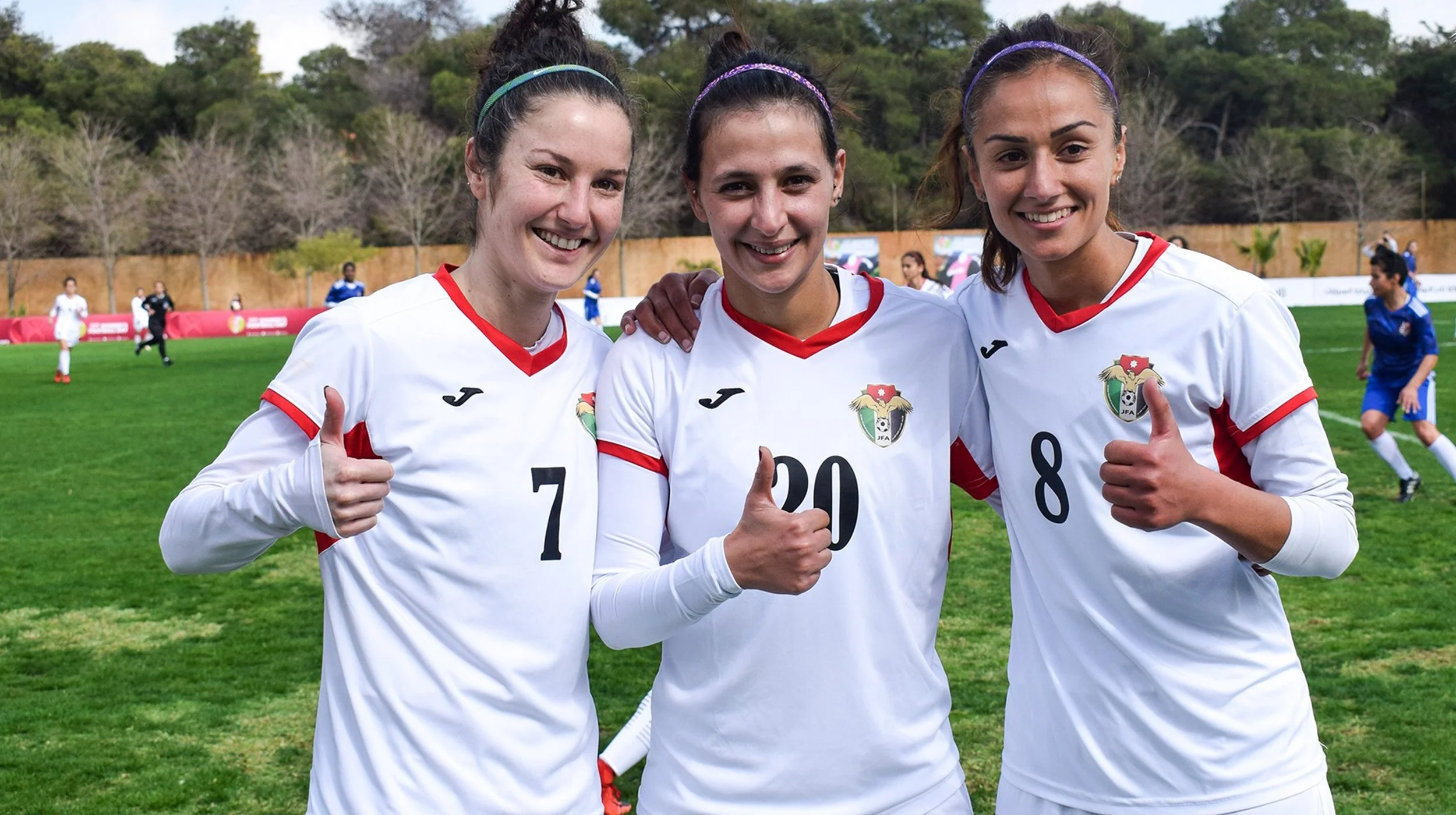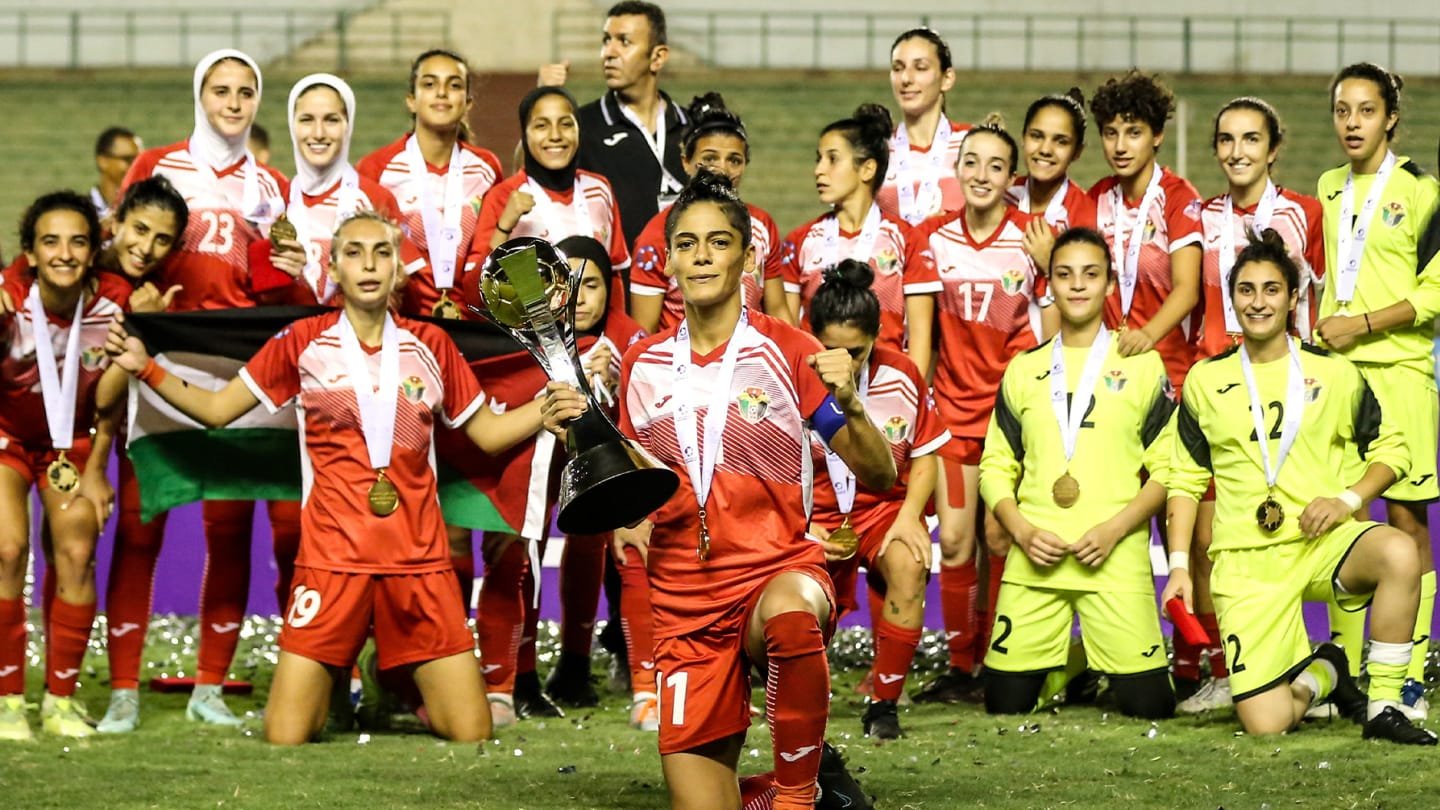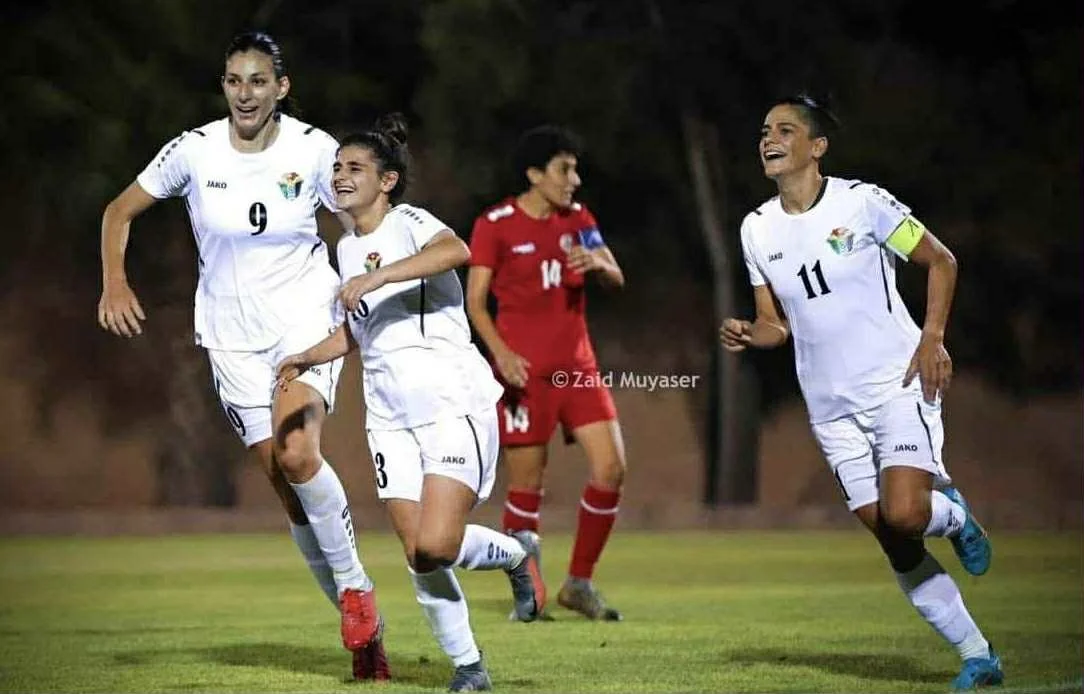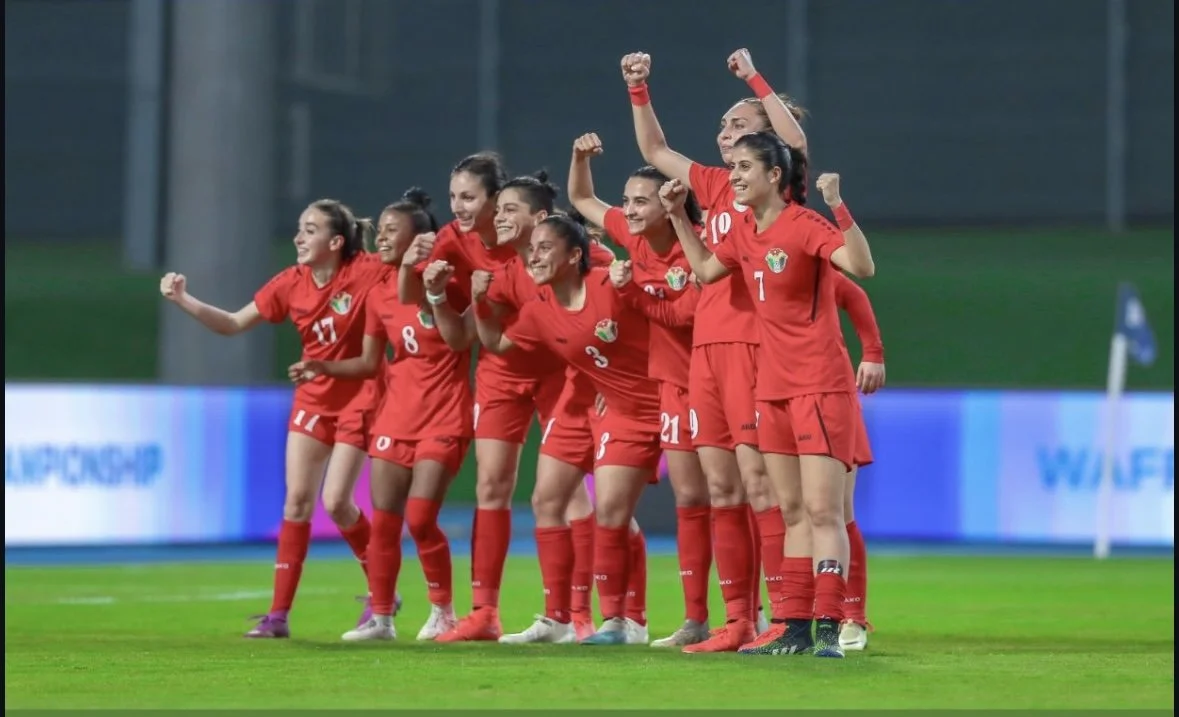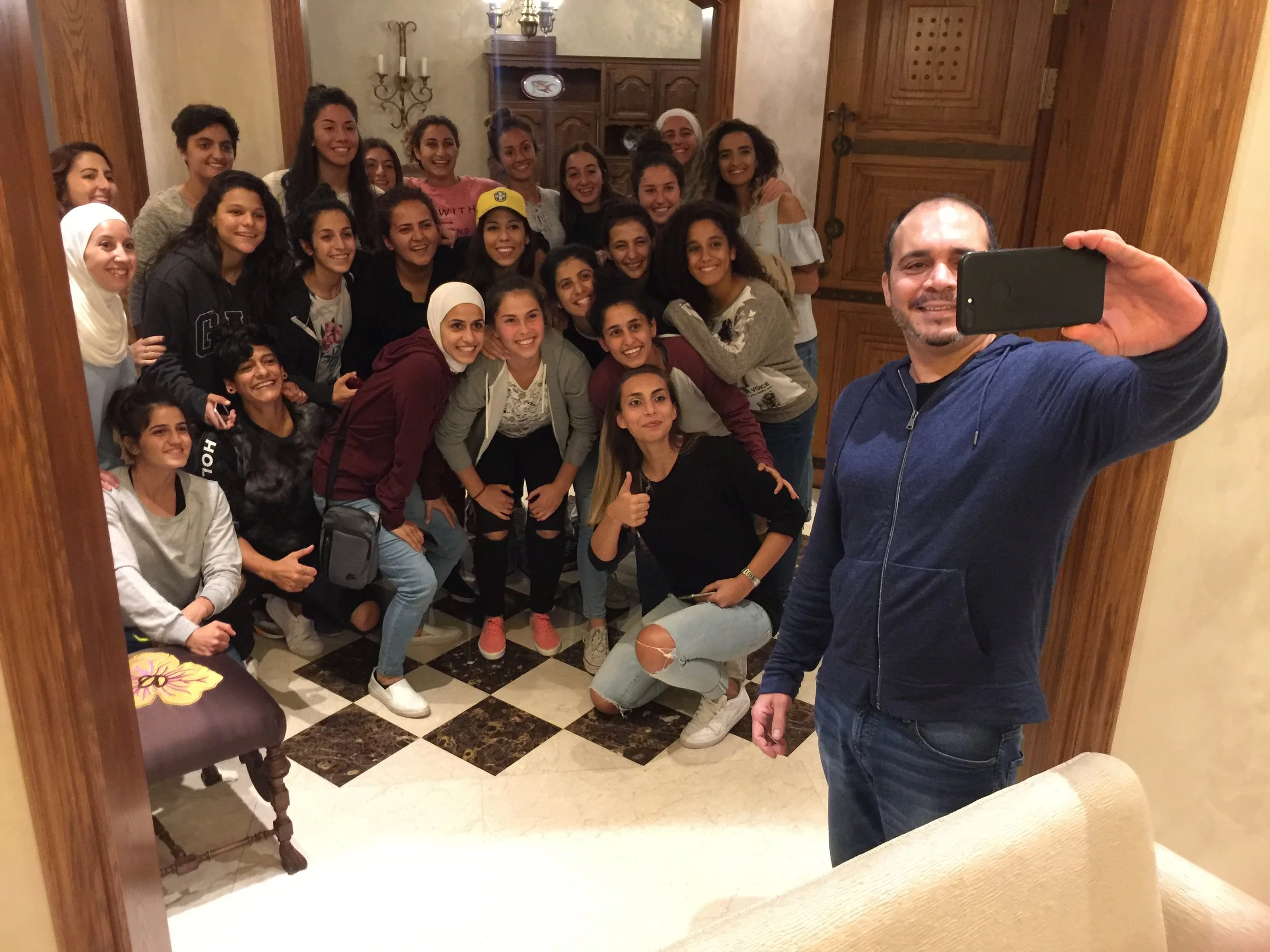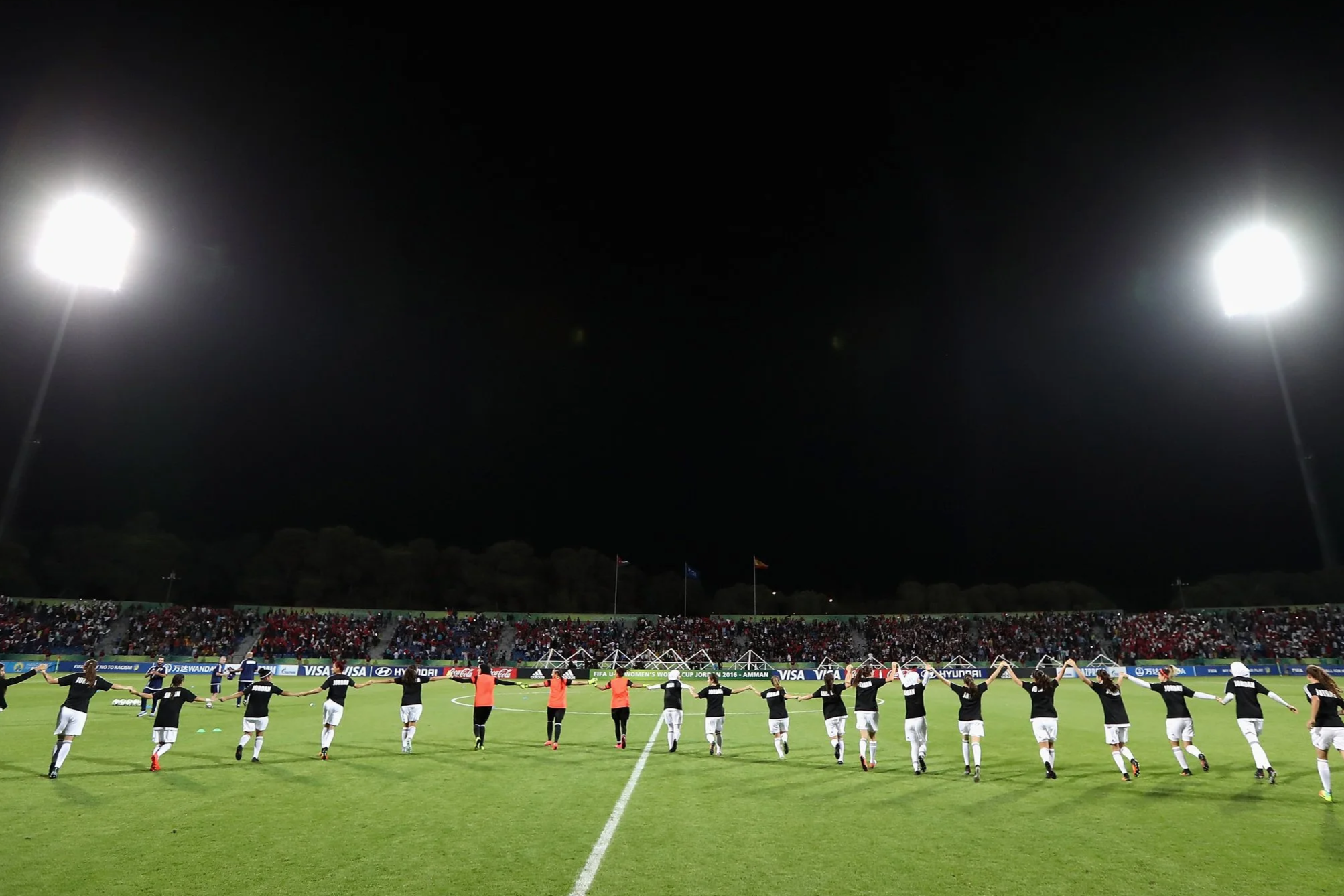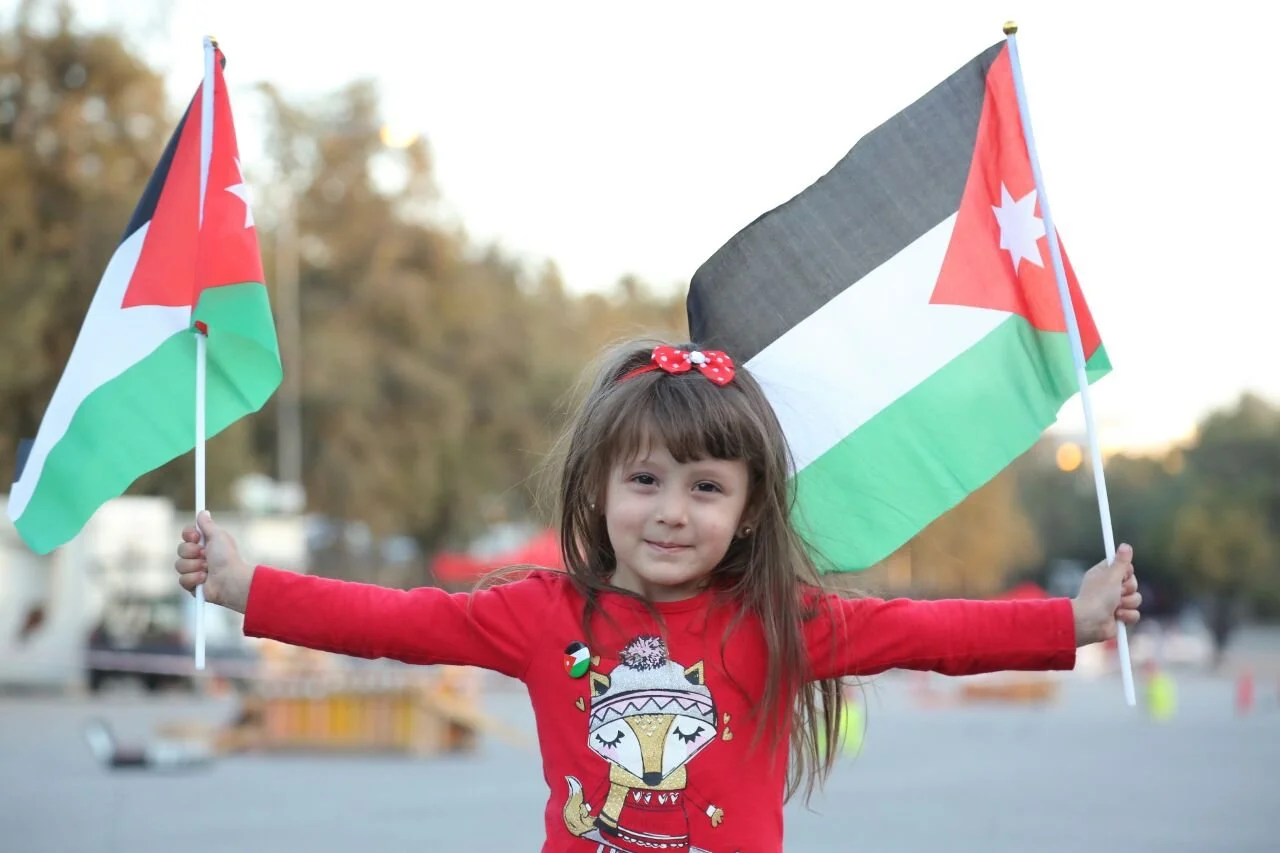Beyond the Pitch: The Journey of Jordan’s Trailblazing Women in Football
A Dream Once Out of Reach
Twenty years ago, a Jordanian girl with a football dream had nowhere to play. No support. No space to develop her skills. No regular match play. No pathway to a professional career. The idea of a Jordanian woman representing her country on the world stage seemed like a distant fantasy.
Today, those dreams are no longer far-fetched. Jordanian female footballers aspire to leave their mark on football’s biggest stages, driven by their own determination and a growing culture of support.
Women’s football in Jordan has witnessed a remarkable transformation in a relatively short period. What was once a struggling movement met with societal resistance has become a thriving platform for empowerment, inspiration, and ambition.
This progress stems from the players’ relentless dedication, the Jordan Football Association’s backing, and the unwavering advocacy of its president, Prince Ali Bin Al Hussein. But this journey was not an easy one.
Breaking Barriers, Shattering Old Notions
In 2005, Jordanian women’s football was officially born. At the time, the team consisted of only 25 young women who represented all age groups — from U19 to the senior team — simply because there weren’t enough players.
The idea of women playing football was occasionally met with skepticism and, at times, outright rejection. But these pioneers persisted.
“At the beginning, people didn’t accept the idea of women playing football,” recalls former defender Heba Fakhreddin. “But we gradually changed society’s view by proving we could actually play. Now, people support us, and hosting tournaments like the U-17 World Cup and the Asian Cup helped raise more awareness and promote the women’s game.”
Their battle wasn’t just against opponents on the pitch — it was against outdated cultural norms. The players faced criticism, judgment, and limited opportunities. Yet, through their passion and resilience, they won over hearts and shifted perceptions.
However, the narrative often pushed by Western media — that women in the Middle East are uniformly oppressed and silenced — distorts the reality most of these players have lived. Like their counterparts in Europe, they faced cultural resistance and structural challenges. But they were also empowered by those around them — especially the men in their lives: fathers, brothers, and friends who believed in them, stood by their side, and showed up again and again. It wasn’t unusual to see them at training sessions and matches, cheering from the sidelines and playing an active role in their journey.
Just as vital was the encouragement from the women around them — mothers, sisters, teammates, and friends — a reminder that women have always had a voice in this society.
“My dream since I was a kid was to become a professional footballer,” says Maysa Jbarah, Jordan’s all-time top scorer. “My late sister believed in me and filled me with support and encouragement — she kept me grounded, focused, and reminded me why I started.
But chasing that dream wasn’t easy. There were no professional opportunities for women in Jordan. If I wanted it to come true, I had to push beyond every limit — not just for myself, but to help change what was possible for all of us.”
A Team United by More Than Football
More than just teammates, these women became family. They spent more time with one another than they did with their own loved ones — training together, traveling together, and sharing victories and heartbreaks as one.
“The team had a mixture of players from different social backgrounds and environments,” says longtime defender Ayah Al Majali. “We had so many differences, but football united us. The relationships we built — on and off the pitch, between each other and even between our families — were essential. Our bond was our strength.”
Young players also found inspiration in the veterans who had paved the way before them. Midfielder Rouzbahan Fraij, who was just 19 at the time, reflects on how the team shaped her growth:
“I’ve changed so much ever since I became a player with the national team. I blended with different people from different cultures and ended up with a different personality — more mature, dependable, and outspoken. I learned so much from the older players, which allowed me to become better and stronger on and off the pitch.”
This unity gave them an edge. They weren’t just fighting for wins; they were fighting for a cause bigger than themselves.
“We had a special bond for all the years we spent together,” says Stephanie Al Naber, the team’s former captain and one of Jordan’s most prolific players. “Mostly because we shared the same dream. It helped us stick together through the good and the bad, knowing that we couldn’t achieve it unless we stood as one.”
And as the world of football slowly opened its doors to them, they dared to dream bigger.
The Turning Point: Hosting the Asian Cup
In 2016, Jordan successfully hosted the FIFA U-17 Women’s World Cup, a landmark moment that gave the women’s game unprecedented exposure. But an even greater opportunity was on the horizon — Jordan was set to host the 2018 AFC Women’s Asian Cup, a tournament that doubled as the qualifier for the 2019 FIFA Women’s World Cup.
This was their chance. This was their golden ticket.
Preparations were intense. The team held training camps across Europe, Asia, and North America, facing international and club teams to sharpen both their physical readiness and tactical edge.
The squad featured a balanced mix of seasoned veterans and players who emerged from the U-17 team and the other youth ranks. It was widely seen as the most complete team Jordan had ever assembled — a group with talent, depth, chemistry, and experience. They trained with a singular goal in mind: World Cup qualification.
“For the first time, we experienced what it felt like to be treated the same as the men’s senior team,” says Yasmeen Khair, former veteran defender. “People didn’t realize how much we sacrificed. Leaving our families, jobs, and studies behind, traveling for months at a time. It wasn’t easy, but we loved it.”
All video footage and interviews in these clips were personally filmed and conducted by Yanal Malkosh during his tenure as Media Manager for the team.
The excitement was undeniable. The entire nation rallied behind them. The team believed they could make history.
Then, the tournament began.
Heartbreak on Home Soil
Jordan’s Asian Cup opening match against the Philippines was meant to be their statement game — a chance to prove their worth on home soil and secure the most attainable win of the group. With China and Thailand — two far tougher opponents — still to come, this was the match they knew they had to take.
The stadium was packed, the air electric with anticipation, a rare and exhilarating sight for the players.
“We dreamt about that day for so long,” recalls Stephanie Al Naber, “but nothing prepares you for the weight of actually living it. Stepping onto the pitch in front of a full stadium — hearing that noise, feeling that energy — it was breathtaking, overwhelming, and strangely disorienting all at once.”
Jordan struck first, with Maysa Jbarah netting an early goal. But as the game went on, nerves crept in. The Philippines equalized and then stole a late winner.
The stadium fell silent.
Darkness. Heartbreak.
A victory in that match would have put Jordan in a commanding position — just one step away from making history. And while the tournament format technically left room to qualify with a result in the remaining games, the players knew the truth: that dream slipped through their fingers the moment the final whistle blew.
The loss was more than just a setback — it was a psychological collapse. The momentum they had worked years to build unraveled in an instant.
In their second match, that weight was visible. Thailand handed them a crushing 6–1 defeat, effectively ending their World Cup hopes. The loss stung even more deeply given that Jordan had beaten Thailand just four months earlier — in Bangkok during their preparation camp. That victory had been a milestone moment for the team, as Stephanie Al Naber, Ayah Al Majali, and Maysa Jbarah all celebrated their 100th international cap.
To go from that high to such a collapse on home soil… what had once felt within reach was now painfully out of sight.
“I once believed the worst moment in my career was when FIFA’s discriminatory ban on hijabs (head covers) prevented us from playing the sport we hold closest to our hearts,” says Shahnaz Jebreen.
“But when the referee blew the final whistle against the Philippines, the pain was unlike anything I had felt before — seeing our lifelong dream, the one we worked for all these years, vanish in 90 minutes.”
Carrying the Legacy Forward
Despite the heartbreak, the team’s journey didn’t stop there. For some, the Asian Cup was their final chapter — several players retired, closing the book on years of sacrifice and dedication. But for others, including Maysa, Ayah, and Rouzbahan, the mission was far from over. They remain the team’s driving force, continuing to lead Jordan forward, alongside a new generation of players determined to keep the dream alive.
“I never played for records,” reflects Maysa Jbarah. “But now that I’m not only Jordan’s top scorer, but also among the world’s leading international goal scorers — and having played professionally in Europe — I know that the dream I had as a little girl became real.
I hope this shows every young girl here that dreams are possible — you just have to fight and work hard to make them come true.”
Maysa’s individual achievements became a symbol of Jordan’s progress in women’s football. But she wasn’t the only one who continued to make an impact.
A Story That Doesn’t End Here
Since that moment, many of these women have continued their football journeys — not just as players, but as pioneers whose legacy is still unfolding.
Maysa Jbarah remains the beating heart of the national team. As captain and Jordan’s all-time top scorer, she now ranks fourth in the world in international goals scored — behind only the biggest names in the sport. Her consistency and leadership have set a global standard.
Ayah Al Majali continues to anchor Jordan’s defense. With over 150 international appearances, she is now one of the most capped players in the country’s history — a testament to her longevity, resilience, and unmatched contribution.
Rouzbahan Fraij has emerged as one of the team’s most influential figures — known for her intelligence, leadership, and consistent high-level performances.
Heba Fakhreddin has transitioned into coaching and is now mentoring the next generation as assistant coach of the Jordan U17 national team — bringing her story full circle.
Stephanie Al Naber, one of Jordan’s most respected and long-serving captains, now serves on the executive committee of the Jordan Football Association, where she advocates for the growth of women’s football nationwide.
Yasmeen Khair, a former gymnast, Arab Games gold medalist, and veteran of 97 national team appearances, has carried her passion into leadership — now serving on the Gymnastics Federation board.
Shahnaz Jebreen, Jordan’s third most capped player with over 130 appearances, retired at the beginning of 2025 and has since transitioned into coaching, now working with the women’s academy at Ittihad Club in Saudi Arabia.
While this story highlights just a few of the players who shaped Jordan’s women’s football journey, there are many more whose names, stories, and sacrifices deserve to be told. From unsung pioneers to rising stars, each one has left a mark that could fill a chapter of its own. Even the players mentioned here have stories far deeper than one feature can capture — stories worthy of a series on their own.
Though Jordan has yet to reach the Women’s World Cup, the foundation laid by these women is nothing short of monumental. They redefined what was possible — not just for girls in Jordan, but for women across the region.
Perhaps the next generation will pick up where these trailblazers left off.
And with the Jordanian men’s national team finally earning its place on football’s grandest stage after 72 years of waiting, we’re reminded that history unfolds in time — sometimes slowly, always patiently.
This story isn’t just a reflection on the past — it’s a reminder of what still lies ahead.
The dream isn’t gone. It’s still alive — waiting for the next team bold enough to chase it.
COPYRIGHT © 2025 OUTSIDE THE BOX ™
This article and its content are the original work of Yanal Malkosh and may not be reproduced or published — whether in full or in part — without the owner’s explicit written consent.
Frames of History: The Journey in Pictures
← scroll right & left →
In Memory of Jehad Al Najjar
Jehad was more than just the talented photographer behind many of the powerful images of Jordanian sports in general — and football in particular. He was a dear colleague and friend whose passion for telling stories through his lens helped bring the journey of Jordan’s women’s national team to life.
Having dedicated many years to covering the team from its earliest days, Jehad captured moments that go beyond the game — moments of resilience, hope, and unbreakable spirit.
His early passing in 2021, left a void that is deeply felt by all who knew him. Yet, his legacy endures in every frame he took, inspiring all of us to keep telling these stories with the same dedication and heart he showed.
We honor Jehad’s memory with gratitude, respect, and affection — his vision remains a lasting gift to Jordanian football and beyond.
Our Feature Stories
More than just a fan!
Here we summarize the background of our visionary founder and his inspiration to create this space.
The Journey of Jordan’s Trailblazing Women
Step into Jordan Women’s National Team’s unique journey and story in the beautiful game.





